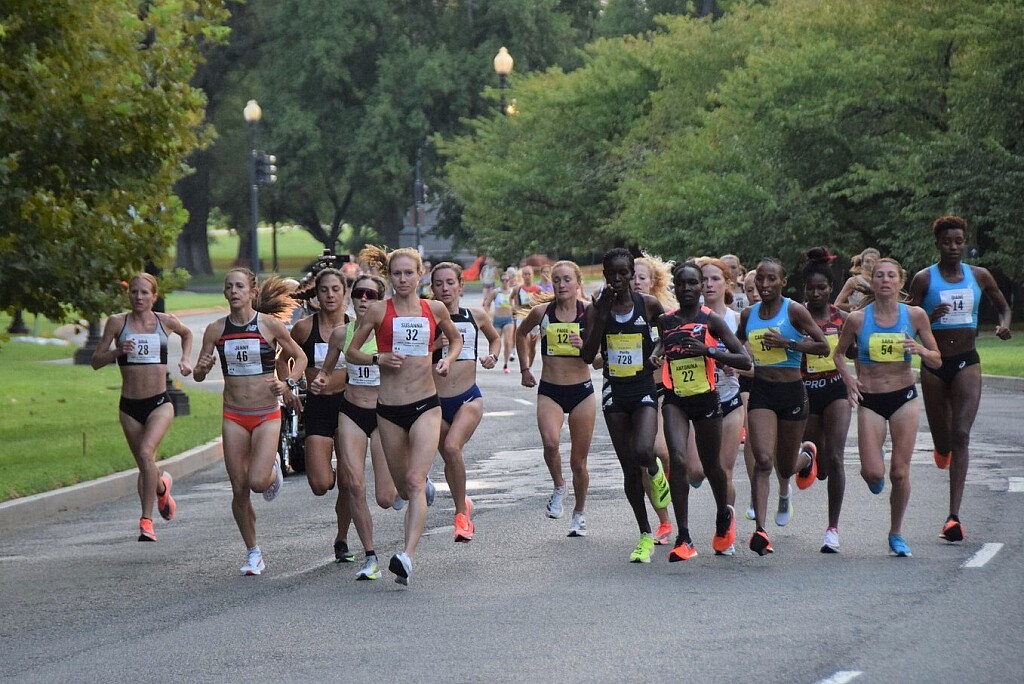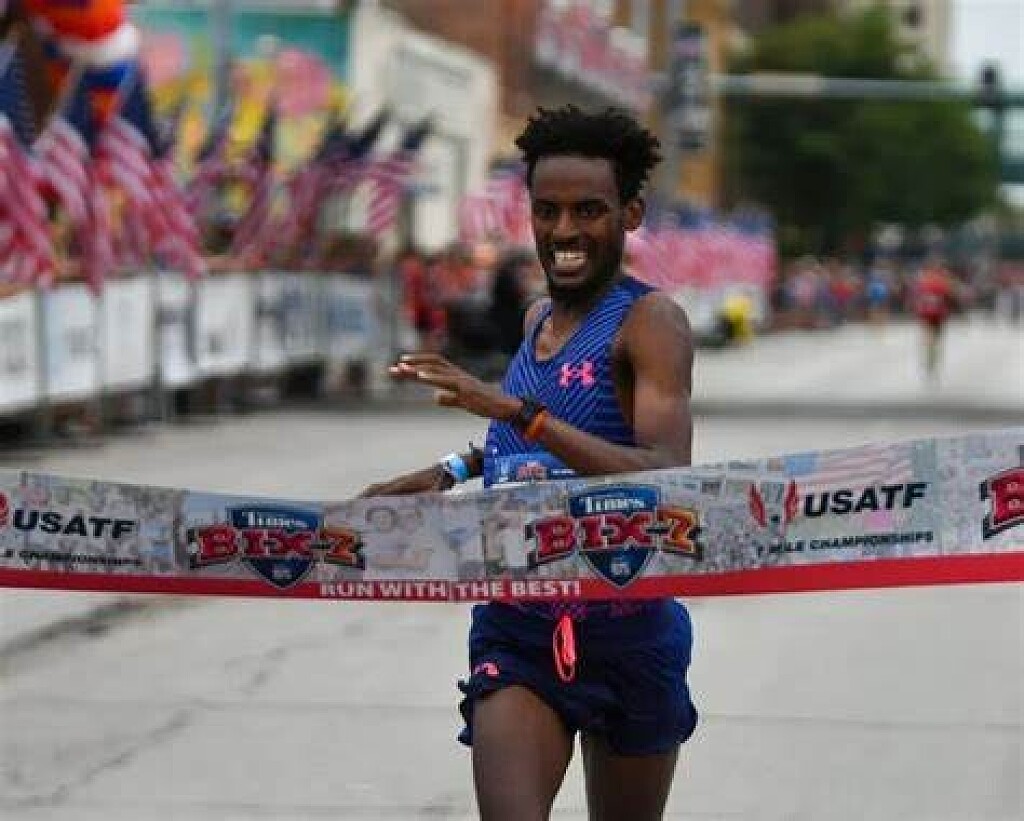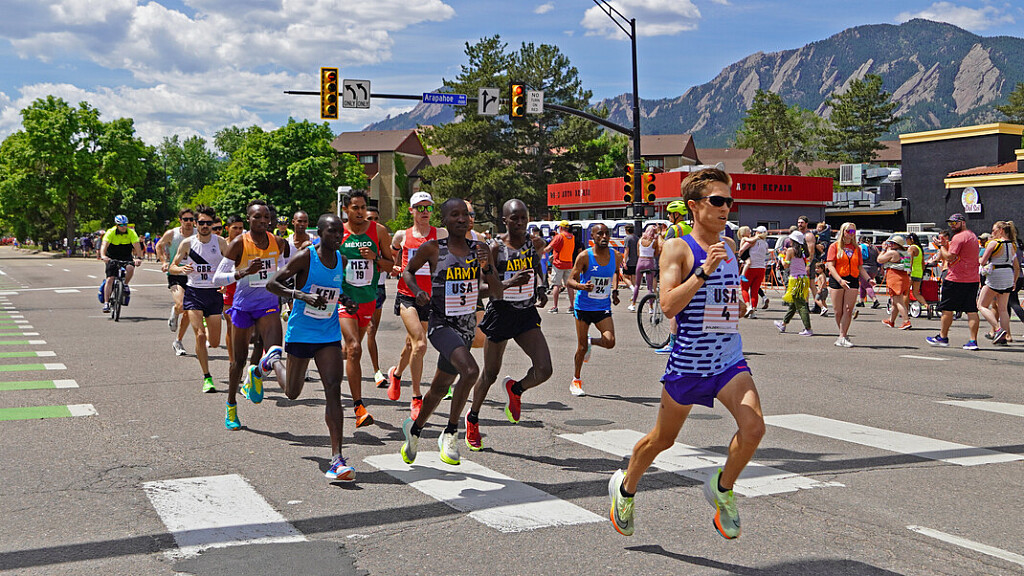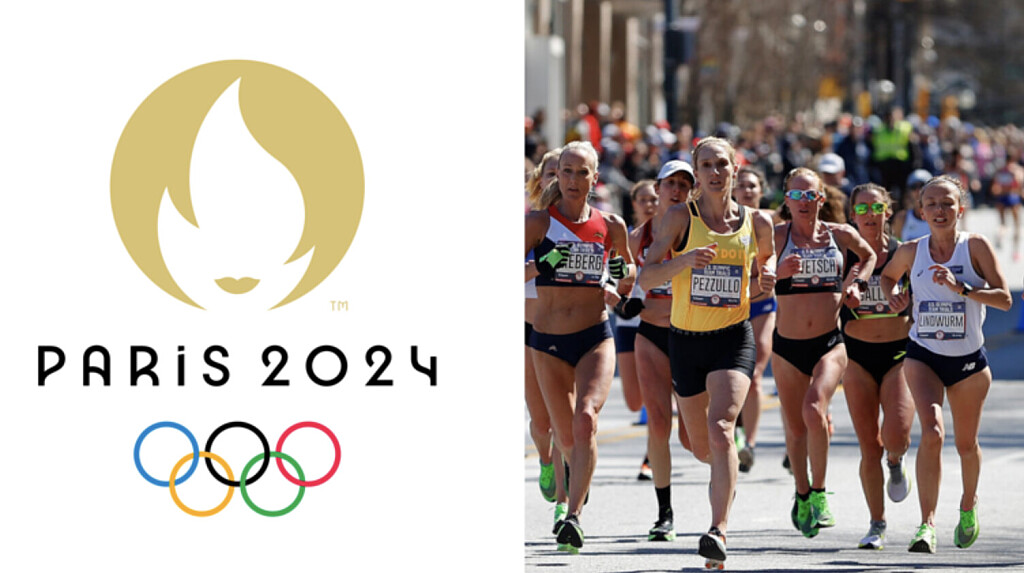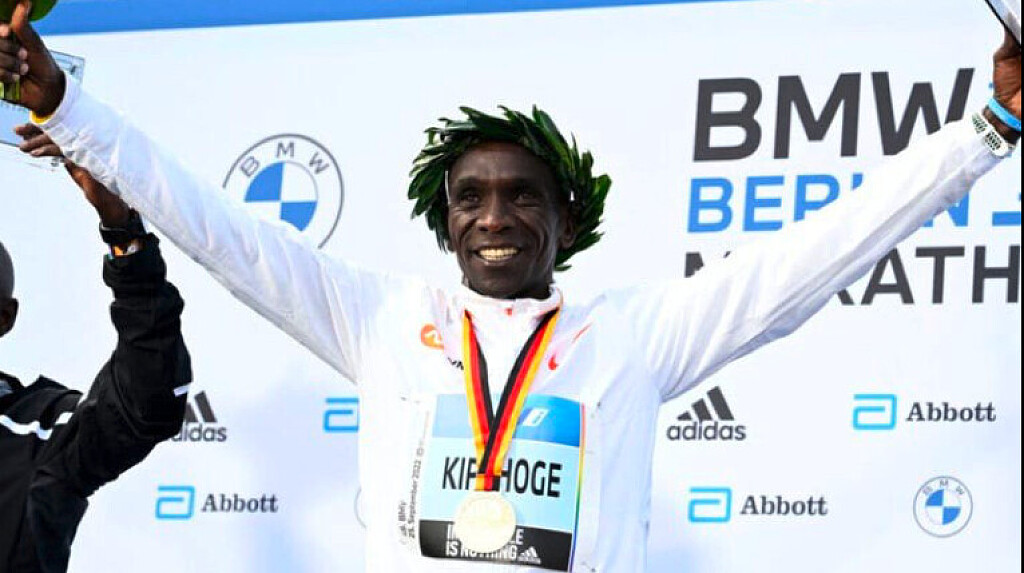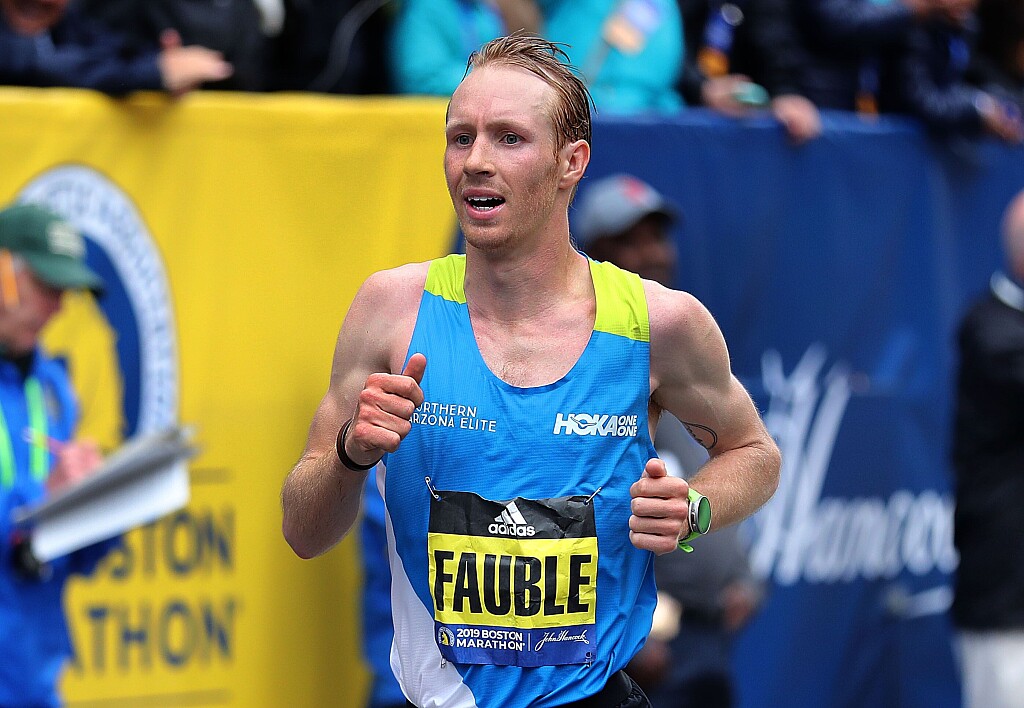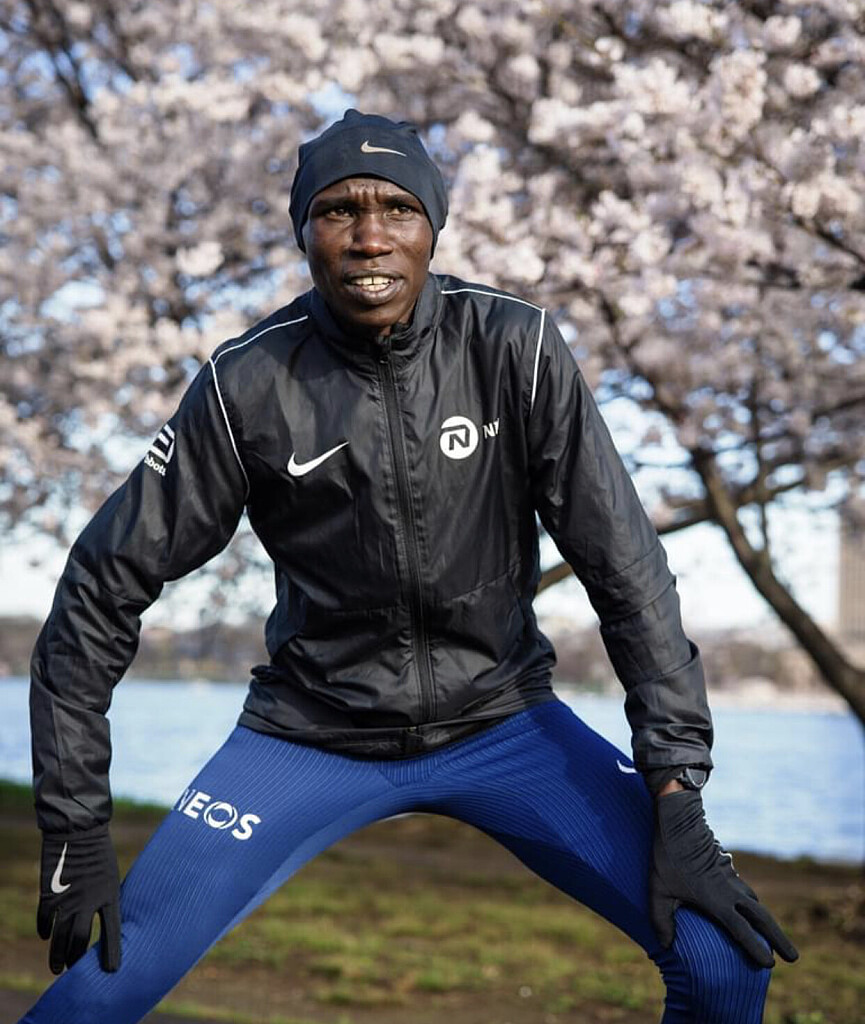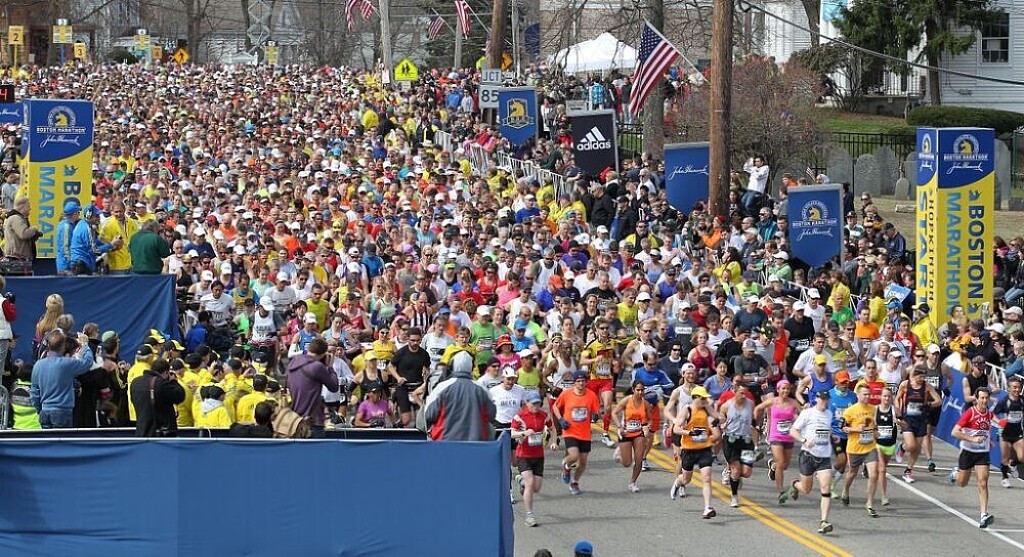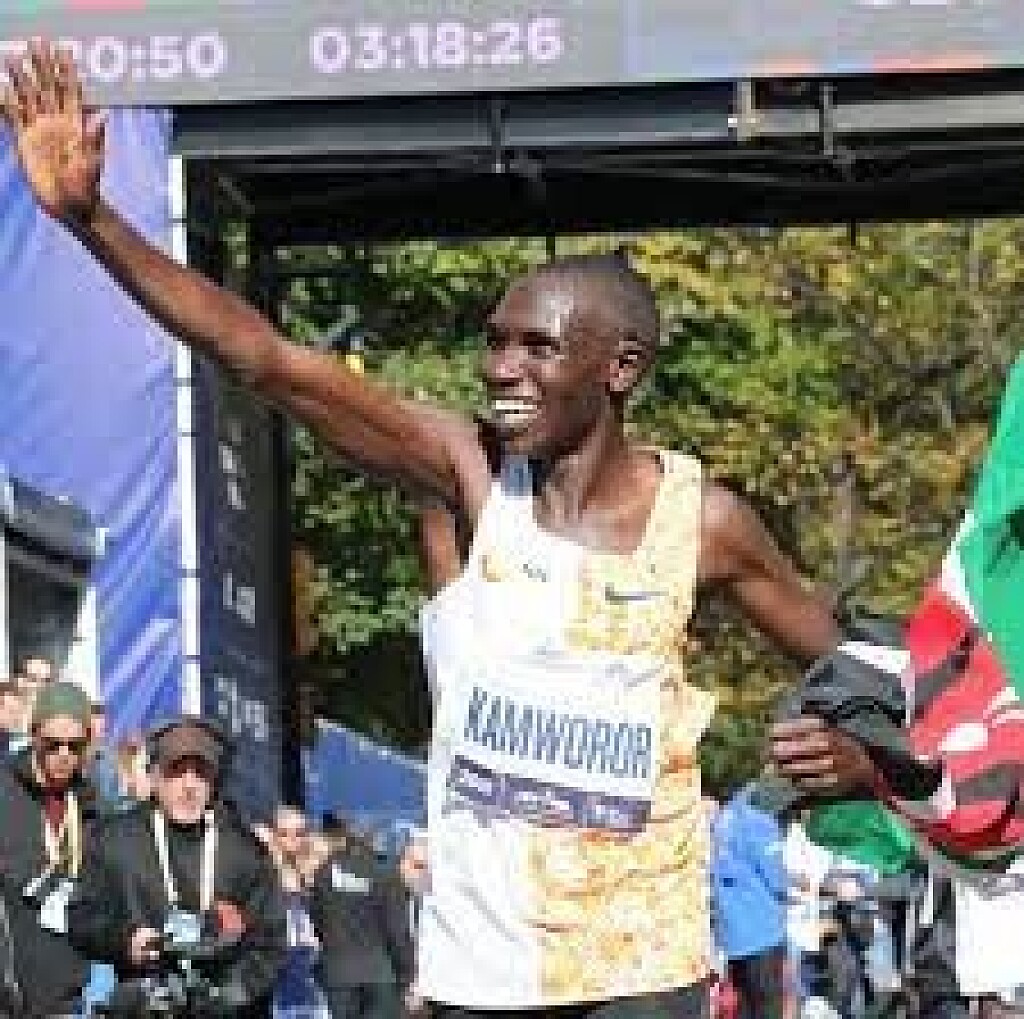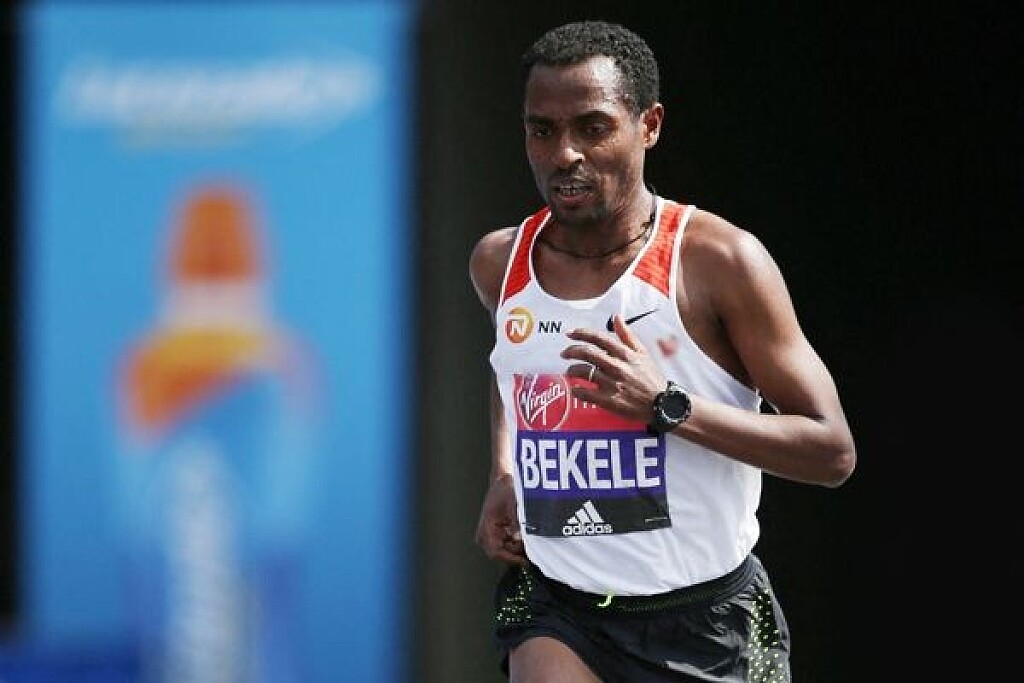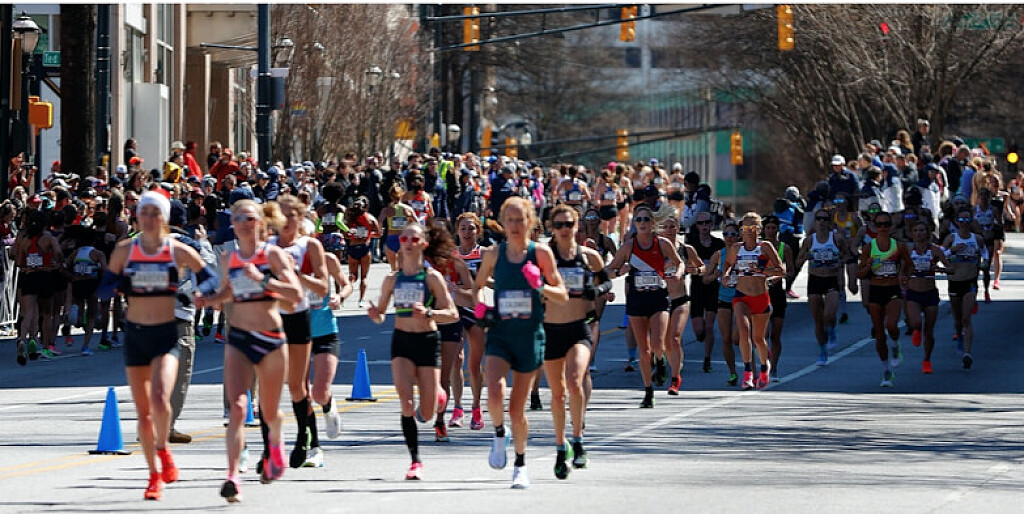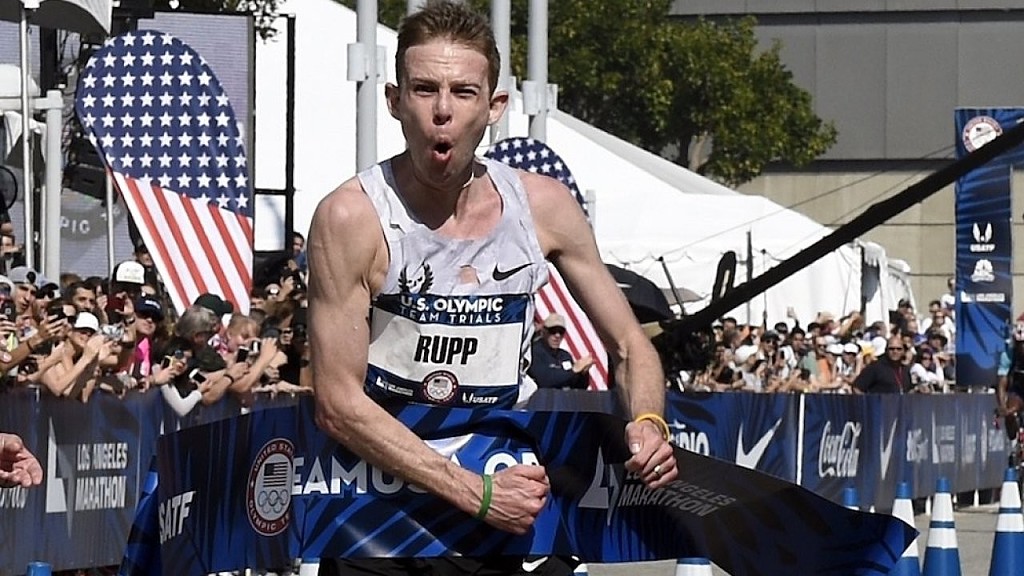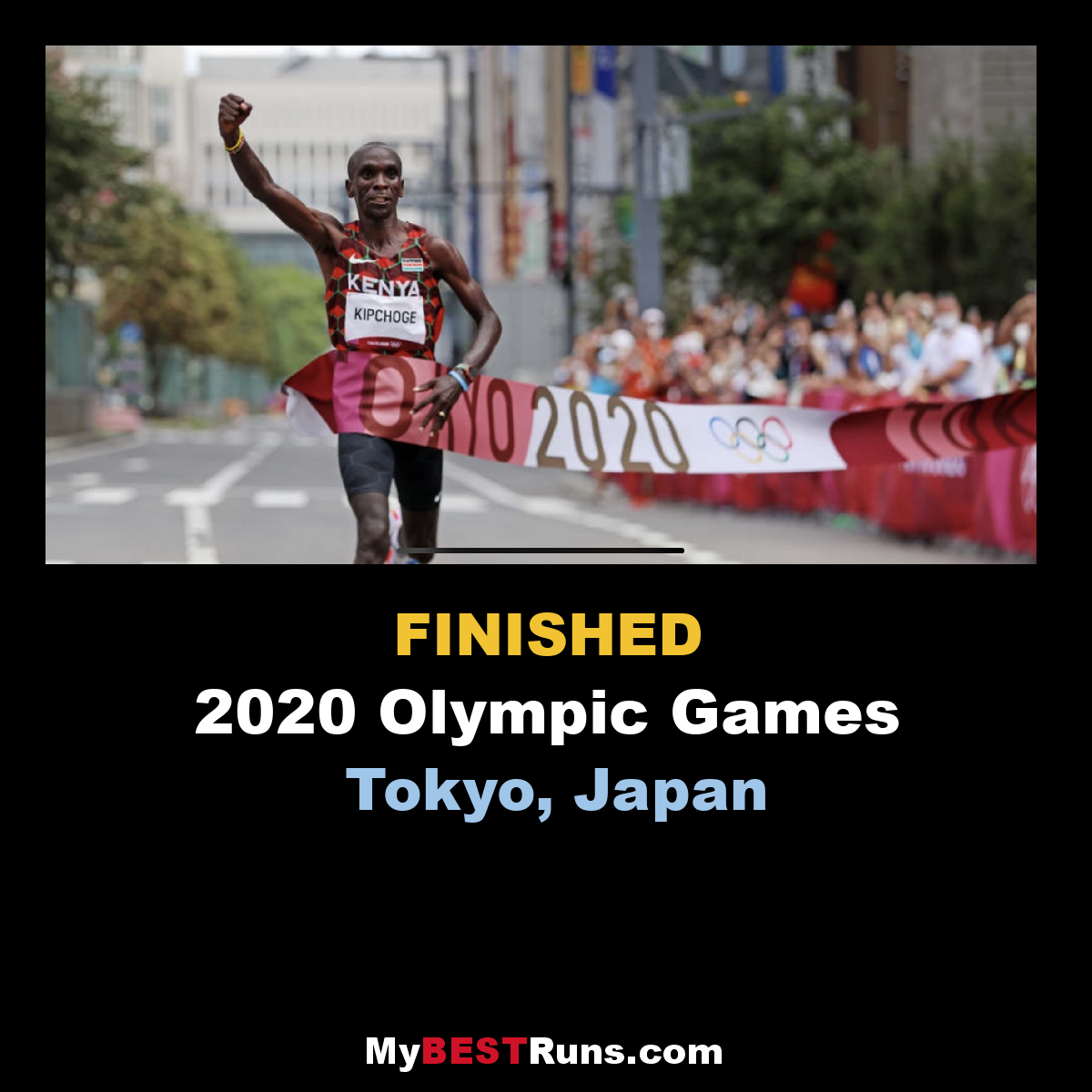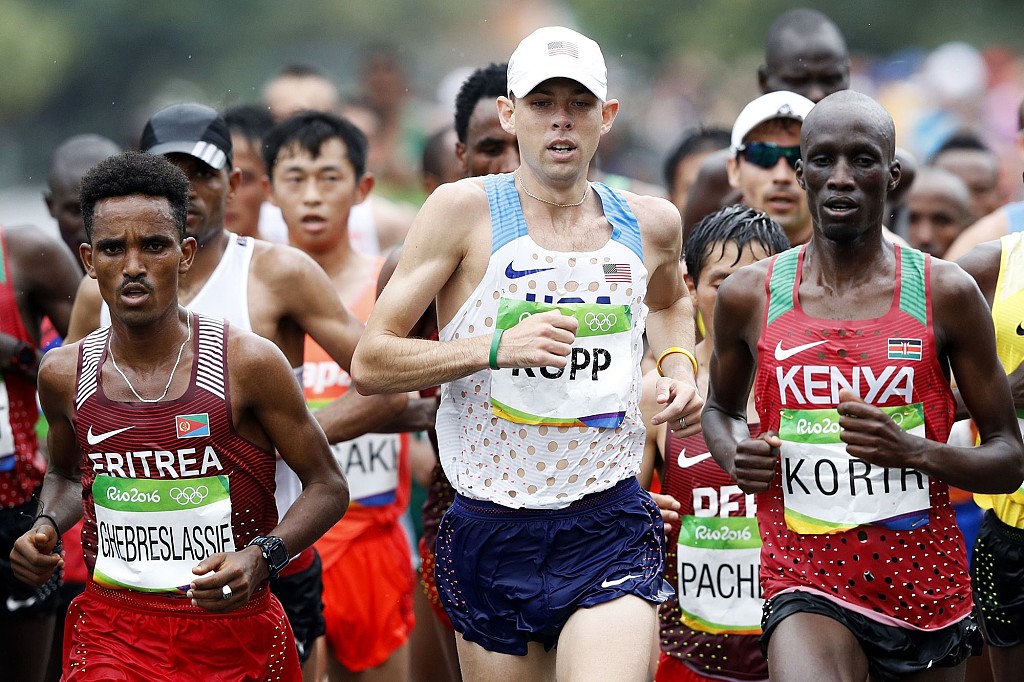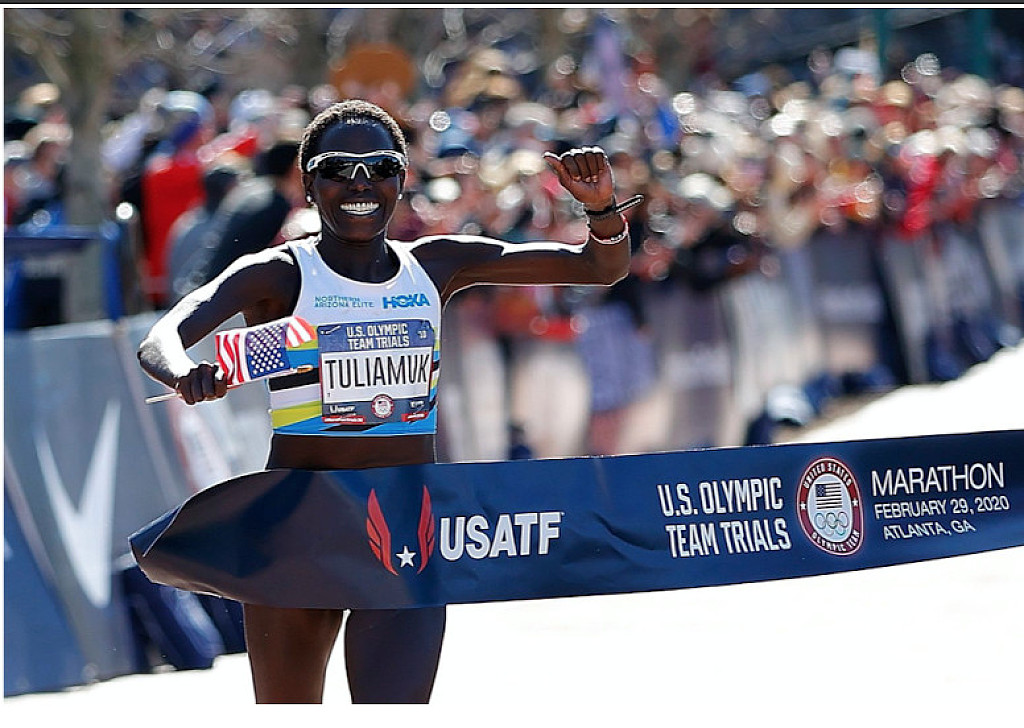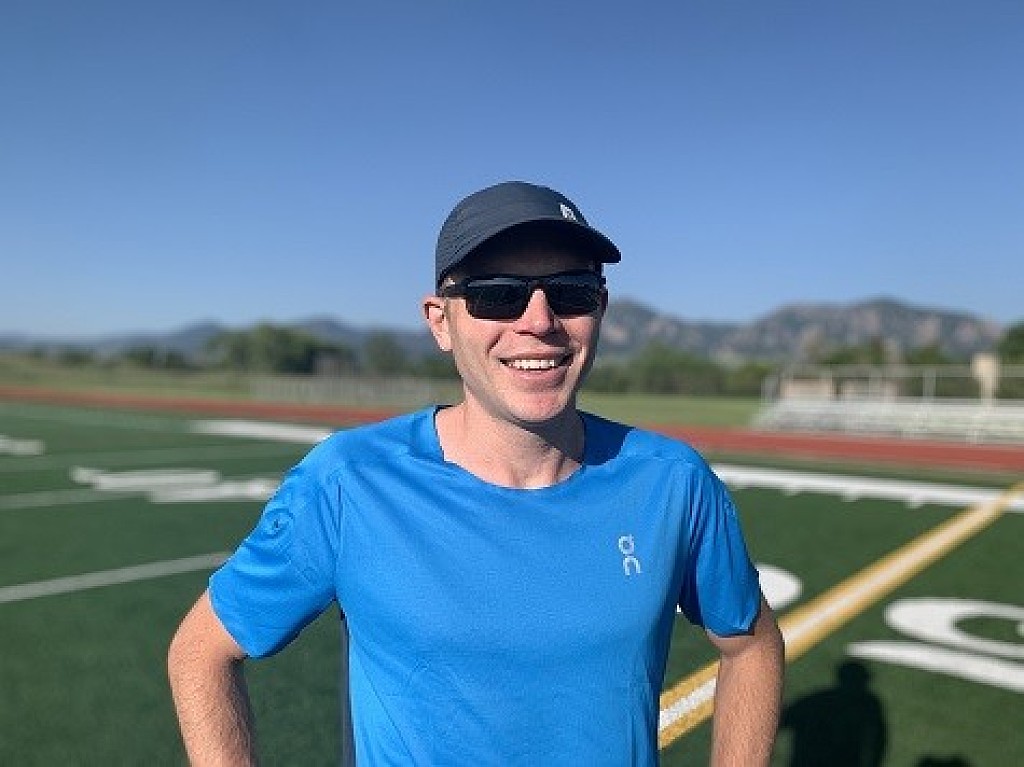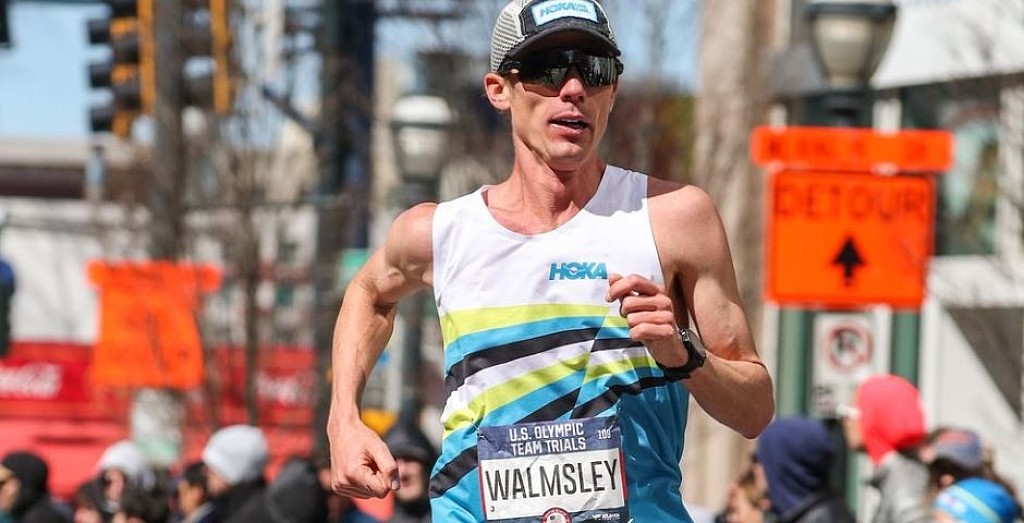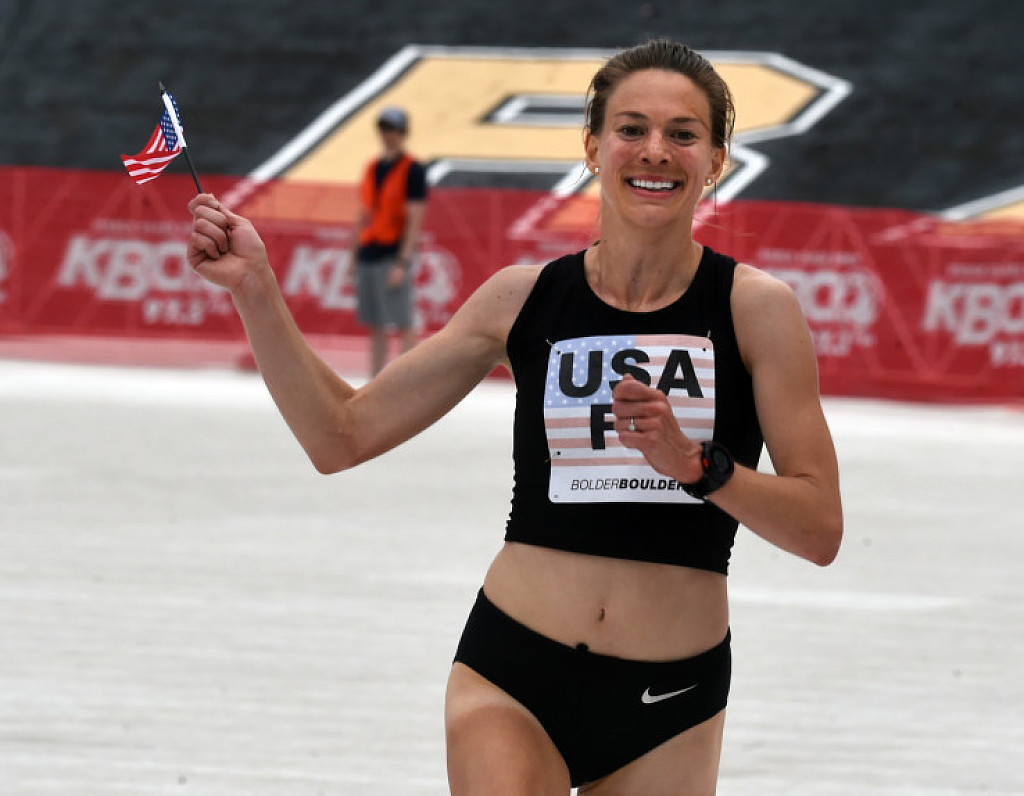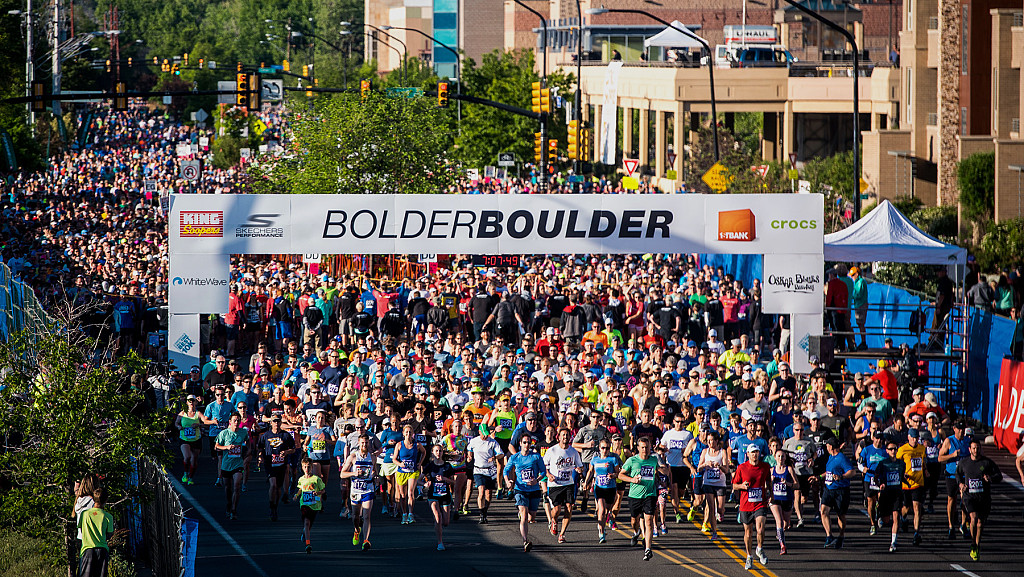Running News Daily
Running News Daily is edited by Bob Anderson. Send your news items to bob@mybestruns.com Advertising opportunities available. Train the Kenyan Way at KATA Kenya and Portugal owned and operated by Bob Anderson. Be sure to catch our movie A Long Run the movie KATA Running Camps and KATA Potato Farms - 31 now open in Kenya! https://kata.ke/
Index to Daily Posts · Sign Up For Updates · Run The World Feed
Articles tagged #Jake Riley
Today's Running News
What the elites eat: Marathon Edition
Curious about what elite marathoners eat to fuel their peak performance? From carb-loaded pre-race meals to post-race burger feasts, here’s an inside look at what the elites eat before, during, and after a marathon.
As runners and human beings, we’re naturally curious, slightly nosy people. With information instantly available with the twitch of a finger across our iPhone screens, this curiosity has never been easier to satisfy. Plus, many of our favorite runners are more transparent than ever about their training blocks, pulling back the blinds through social media to show what it takes to be the best. Which is why we’re ever-fascinated by the race-related nutrition strategy of elite runners, who often perform at superhero-like levels.
We asked a few elite marathoners what they eat surrounding race day—pre-race dinner, pre-race breakfast, and post-race celebration—so you don’t have to.
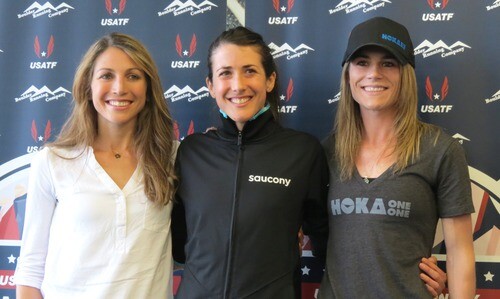
Note: One sentiment echoed among all of the athletes interviewed was that their diets are personal and have gone through lots of trial-and-error to be finessed to their specifications. No lifestyle should be replicated exactly.
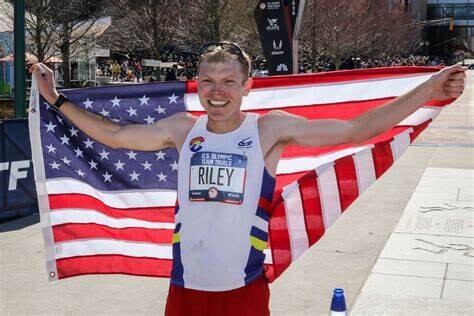
35, Boulder, Colorado
About him: First American and ninth overall finisher in the 2019 Chicago Marathon (2:10:36). Placed second at the 2020 U.S. Olympic Trials Marathon (2:10:02); Finished 28th in Tokyo Olympics marathon (2:16:26). After a second round of double Haglund’s surgery in 2022, he’s back in top form and running the 2024 New York City Marathon on November 3.
The night(s) before a race:
“I start thinking about meals two nights out, and I go carb-heavy on both. For the first night, I like to have Thai food, usually a noodle dish, and a side of rice. The only thing I’ll really avoid is spice since I’ve had issues from it a couple times. The night before, I do pasta, usually a marinara (that’s what a lot of races provide for the elite athletes), but a good pesto sauce works well, too. I mostly stay away from the creamy sauces. I don’t like to get too much more specific—you never know exactly what’s going to be available, so I try not to make particular foods part of my routine.”
Race morning:
“Race mornings I’ll get up at least three hours before (I prefer four, but with 7 to 8 A.M. starts, that becomes a little counter-productive), I’ll go for a short walk with some skipping or something, just to get the body moving. My first choice for breakfast is oatmeal with peanut butter, honey, and a little fruit mixed in. And at least one, usually two cups of coffee. It’s not something to avoid, but I recommend making sure that you have more than just simple carbs (cereal, muffin, etc), I find that if there isn’t at least some protein, I start getting that ‘empty’ feeling during my warmup, and if that mixes with the adrenaline, I feel real queasy. If I’m taking gels, I take one on the start line, maybe five minutes before. I also like Generation UCAN, which I’ll sip as I’m going through my drills, maybe half an hour out.”
During the race:
“I like to get my calories from gels and have just electrolytes in my bottles. Most major marathons provide drink stations every 5K, and I’ll drink about 8-10 oz of SOS per bottle (there can be splashing, and you never get it all out). I’ll take Roctane gels before every other drink station (every 30 minutes or so).”
Post-race meal:
“Most races I want a hash—lots of potatoes with some eggs, bacon, cheese, and veggies all mixed up, but after marathons my stomach takes a while to settle down, so I’m more in a lunch mood. So my go-to post-race meal is a big bistro bacon cheeseburger, ideally with an onion ring and barbecue sauce, side of fries, and a beer. I mostly stay away from fried foods during a build up, but I always take at least a week off after a marathon and at this point, that beer and burger is almost a Pavlovian ‘vacation time’ signal for my whole body.”
41, Flagstaff, Arizona
About her: She’s the fourth-fastest American woman in history based on her personal best (2:20:2) at the 2020 Marathon Project; Second-fastest American female half-marathon runner and former American record-holder (1:07:15). Most recently, she was 18th overall and the women’s master champion in the 2024 Chicago Marathon (2:30:12).
The night(s) before a race:
“Rice with chicken. I skip the veggies to not risk having to make a bathroom stop in the race.”
Pre-race breakfast:
“Two scoops of UCAN energy powder with whey protein, and a little bit of almond butter.” Bonus, Hall credits her husband, Ryan Hall, as being the best coffee maker, brewing pour-over, medium roast coffee blended with butter.
During the race:
Ketone-IQ—peach flavored.
Post-race meal:
“My favorite post-meal race is Thai food. I’m usually eating a lot of boring food before the race, so I want something spicy and more flavorful after.”
Bonus—Lunch during training blocks:
“Two scoops of UCAN powder, two pieces of gluten-free bread with Kerrygold Butter.”
36, Boulder, Colorado
About her: Won the 2019 Grandma’s Marathon and finished ninth in the 2020 U.S. Women’s Olympic Trials Marathon in 2:30:39. She was the top American finisher in the Boston Marathon in 2021 (fifth, 2:27:12, ) and 2022 (10th, 2:25:57). In January, she placed ninth in the Houston Half Marathon in a new personal best of 1:08:52.
The night(s) before a race:
“I always have the same thing. Basically, a couple cups of white rice and a chicken breast is where I tend to fall. White rice is going to fuel the most carbs per serving. I used to mix up potatoes and white rice, but for me, I digest white rice well, I feel better, it’s easy to find, simple, and works well.
I don’t care about spices—and I’m usually not making it myself if I’m not at home. Typically, before races, there’s a pre-race dinner, and chicken is an option. I wouldn’t do any cream-based sauces. If it tastes good, great. If it doesn’t, great. I don’t care.”
Pre-race breakfast:
“Typically it’s oatmeal with a tablespoon of peanut butter, a banana, and maybe honey. I’m not 100 percent satisfied with my pre-race meal, because sometimes it can feel a bit heavy in my stomach, because oatmeal does have some fiber. So I try to play around with things. Sometimes I’ll do a couple pieces of toast with a banana and peanut butter. I can switch between those two. Try to get 500-600 calories in, mostly from carbs, two-three hours before the race. Plus, I drink coffee with half-and-half.
Post-race meal:
“Immediately after the race, I honestly will grab whatever is available. Typically, after a race, we’ll be shuttled to a post-race holding area where you’re waiting, so there are usually refreshments there. I’ll slam Gatorade—anything with sugar and electrolytes. Maybe there’s my own bottle with Skratch in it. Banana, a protein shake. I’m pretty open, as long as it’s immediate.
And as far as later, it completely depends. I’m trying to do a better job at this—especially after a major marathon—but it kind of takes a while. You might get drug-tested, then shuttled back to your hotel, shower, then six hours later you’re like, ‘I need to eat.’ If it’s a marathon, I love a big burger with fries—the classic stuff, lettuce, tomato, onion, and tons of ketchup and mayo. That’s something my body would crave. Fries are my favorite food ever that I don’t typically eat during a marathon cycle.”
35, Louisville, Colorado
About her: Finished sixth in the 2017 London Marathon (2:25:38), seventh in the 2019 New York City Marathon (2:28:23), eighth in the 2019 Chicago Marathon (2:29:06), eighth in the 2021 New York City Marathon (2:27:00). Most recently, an Achilles injury forced her to pull out of the 2024 Chicago Marathon days before the race.
The night(s) before a race:
“I do 72-hours of carb-loading. So, obviously, in the build to that, carbs are key. Three days out from the race is when I start it. It is always the same. The night before, I have pasta with marinara sauce, and I don’t do a lot of protein with that. I do love angel hair, that’s my go-to. I also like rigatoni. Plus, I’ll have some type of bread and salad.”
Pre-race breakfast:
“The morning of, I always do a plain bagel and peanut butter with a banana. I’ve done that since high school. And I do an Americano with two shots. I eat that threeish hours out from the race.
During the race:
“I’ll take my first gel 15 minutes before the start of the race. I’ve been all over the place with what I take, but right now, Neversecond. Big fan of their Cola C30 gels. They worked wonders for me during this build. I had some stomach issues earlier in the build with long runs and couldn’t quite figure out what was going on, so I switched up my nutrition during, so never second has been a godsend.”
Post-race meal:
“After the race, it’s hard because usually my stomach is a mess. Not only did you just run really hard for two and a half hours, but you’re taking all this fuel during, so I have a really hard time eating solids immediately after the race. My choice if I can get it is soda. I’m not a big soda drinker, but after a marathon, all I want is a Coke, Sprite, or Ginger Ale. I’m always really thirsty when I finish.
Then later when I feel like eating, I always do a burger (stacked with all the fixings—sometimes adding bacon) and sweet potato fries with ranch. I never opt out of Ranch. Anything I can dip ranch in is a plus for me. And I order a Blue Moon. I’m not a beer drinker, but that’s what I want after a marathon.”
by Mallory Arnold
Login to leave a comment
Defending champions return to Bix
Kellyn Taylor and Biya Simbassa each ran the Quad-City Times Bix 7 for the first time last year.
They clearly loved the course, the atmosphere and just about everything about the annual race through the streets of Davenport.
Both Taylor and Simbassa held off late challenges from other runners, both ran the sixth best Bix 7 times ever by a U.S. athlete of their gender and both plan to return to defend their championships when the race is held for the 50th time on July 27.
It marks the first time in 12 years that both the men’s and women’s champions are returning to defend their Bix titles.
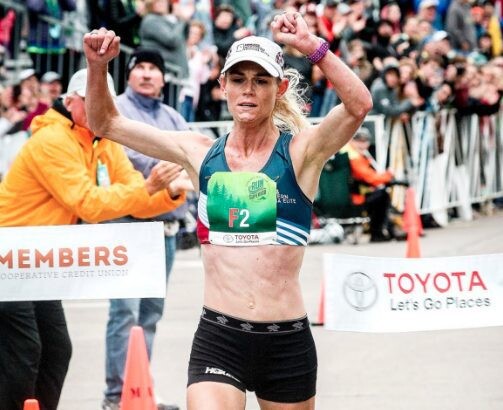
Simbassa admitted he wasn’t really sure how he felt about the Bix 7 course last year when he first saw the endless array of ups and downs in the course. But after holding off Olympian Clayton Young to win, he liked it.
“I mean, now I do,’’ he said after his victory. “It’s a course that’s all about strength and I train for this."
Taylor went through a similar transformation.
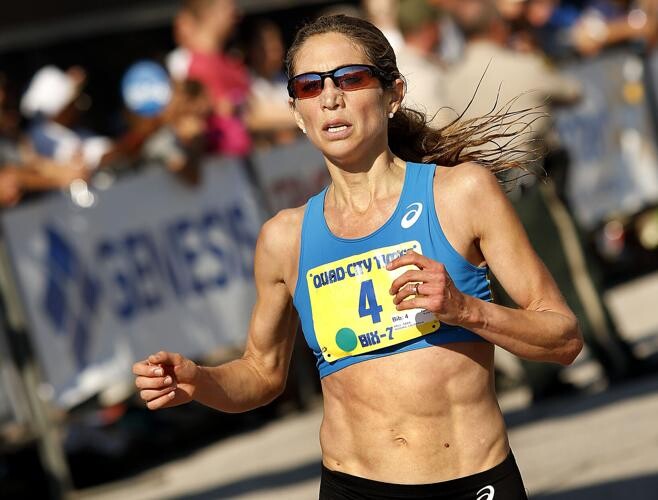
“When I saw the course, I was like, ‘Oh, no. What did I get myself into?’ ” she said. “That’s a super substantial hill right at the beginning and then it rolls all the way through. It’s certainly not easy by any means. I think that works to my favor since I’m more of a strength runner.”
Taylor appreciated more than just the hills.
“The crowds were amazing,” she said. “It’s not what I expected at all — the streets were completely lined, and a race that isn’t a huge marathon, I don’t feel like you see that that often. The crowds were incredible.”
Taylor and Simbassa will be bidding to repeat as Bix 7 champions, something that has been done only seven times in the race’s history, four times by men, three times by women.
Both runners failed to land berths on the U.S. Olympic team, which would have precluded a return to Bix, but they’ve still used their 2023 victories as a springboard to additional success.
Taylor briefly led the New York City Marathon last November before placing eighth, making her the top American finisher in the race. It was the third time she has been in the top eight at New York.
The Wisconsin native, who will turn 38 a few days before the Bix 7, then focused her attention on making the U.S. Olympic team and made a respectable showing in the trials in the marathon, finishing 15th, and the 10,000 meters, placing sixth.
Simbassa, a 31-year-old native of Ethiopia who now lives in Flagstaff, Arizona, attempted to earn an Olympic spot in the marathon but placed 11th in the trials.
However, he has followed that with an ambitious schedule on the U.S. road racing circuit, recording top-five finishes in the Bolder Boulder 10k (5th), Cherry Blossom 10-miler (5th), Gate River 15k (4th), Amway River Bank 25k (3rd) and Houston Half-marathon (4th).
Also included in the field are four former Olympians and nine other runners who have placed in the top 10 at the Bix 7 in the past. Elite athlete coordinator John Tope said even more top runners could be added between now and race day.
Among the top men’s entries are two former Iowa State University standouts.
Wesley Kiptoo of Kenya was the 2021 NCAA indoor 5,000-meter champion and a seven-time All-American for the Cyclones. He was seventh in the Bix 7 two years ago and won the Cherry Blossom 10-miler earlier this year.
Hillary Bor, a Kenya native who is now an American citizen, also attended Iowa State before representing the U.S. in the 3,000-meter steeplechase at the Olympics in both 2016 and 2021. He also is the U.S. record-holder in the 10-mile run.
Other former Olympians in the field are Morocco’s Mohamed El Aaraby and Americans Jake Riley and Shadrack Kipchirchir. Riley and Araby both competed in the marathon in Tokyo in 2021 and Kipchirchir ran the 10,000 meters in 2016.
Riley also is a Bix 7 veteran along with Kenya’s Reuben Mosip and Americans Frank Lara, Andrew Colley and Isai Rodriguez. Lara was second in the Bix 7 in 2021 and eighth a year ago.
Rounding out the men’s field are Raymond Magut of Kenya; Tsegay Tuemay and Tesfu Tewelde of Eritrea; and Americans Nathan Martin, Ryan Ford, JP Trojan, Merga Gemeda and Titus Winders.
The most recognizable name in the women’s field is 41-year-old Sara Hall, the wife of two-time Olympian, U.S. half-marathon record-holder and 2010 Bix champion Ryan Hall. Sara Hall was fifth in the U.S. Olympic marathon trials earlier this year and has two strong Bix 7 efforts on her resume, placing second in 2014 and third in 2017.
She and Taylor will be challenged by three up-and-coming runners from Kenya — Emmaculate Anyango Achol, Grace Loibach Nawowuna and Sarah Naibei. Achol has run the second fastest women’s 10k ever (28:57) and Naibei won the Lilac Bloomsday 12k in May.
Also in the field are Bix 7 veterans Kassie Parker, Jessa Hanson, Carrie Verdon and Tristin Van Ord along with Americans Annmarie Tuxbury and Stephanie Sherman, Ethiopia’s Mahlet Mulugeta and Kenya's Veronicah Wanjiru.
The elite field also includes four legendary runners who have helped build the Bix 7 into the international event that it is. Two-time champion Bill Rodgers, who has run the Bix 7 43 times, will be joined by four-time women’s champion and 1984 Olympic gold medalist Joan Samuelson, two-time Olympic medalist Frank Shorter and Meb Keflezighi, who has two Bix titles and an Olympic silver medal on his resume.
by Don Doxsie
Login to leave a comment
Bix 7 miler
This race attracts the greatest long distance runners in the world competing to win thousands of dollars in prize money. It is said to be the highest purse of any non-marathon race. Tremendous spectator support, entertainment and post party. Come and try to conquer this challenging course along with over 15,000 other participants, as you "Run With The Best." In...
more...U.S. Olympic Marathoners Will Race the Bolder Boulder 10K as a Pre-Paris Tune-Up
Conner Mantz, Clayton Young, and Leonard Korir will run in the International Pro Team Challenge on May 27.
Memorial Day is always an exceptional celebration for runners in Boulder, Colorado, but this year, it will have some extra special Olympic flair.
On Monday, May 27, more than 40,000 runners will run through the city that’s known for the iconic Flatirons rock formations, the Pearl Street pedestrian mall, and an exceptionally active population in the annual Bolder Boulder 10K. Now in its 44th year, it’s been one of the top road running races in the U.S. since its inception, and this year will serve as one of the final tune-ups for the men’s U.S. Olympic marathon squad before racing in the Paris Olympics later this summer.
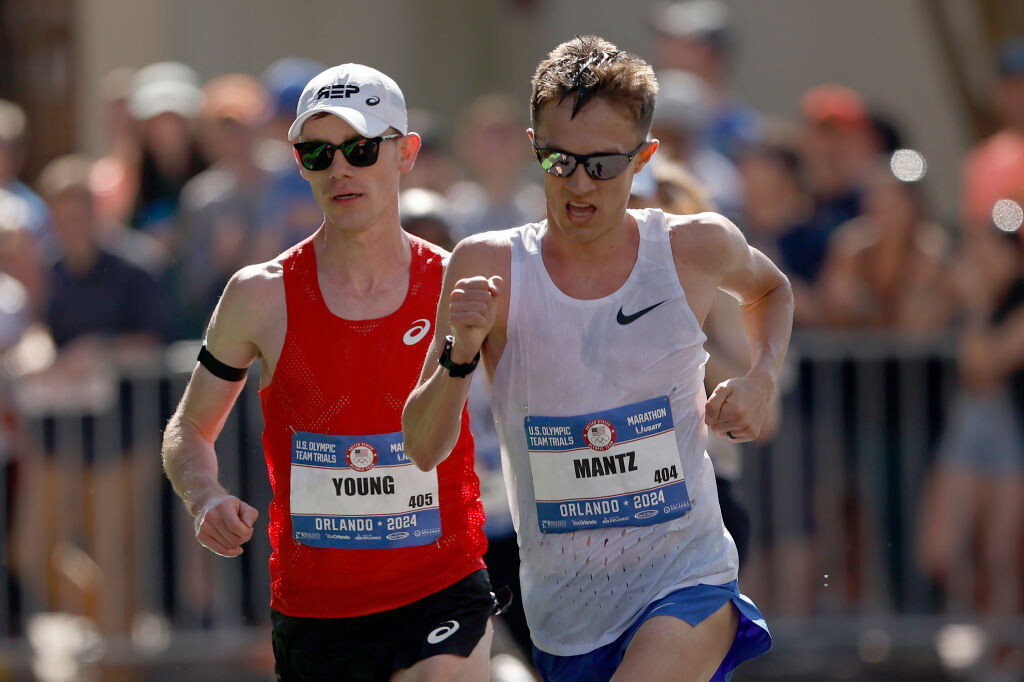
Conner Mantz, Clayton Young, and Leonard Korir, the top three finishers in the 2024 U.S. Olympic Trials who will be racing the marathon in the Paris Olympics on August 10, will be competing as Team USA Red in the Bolder Boulder’s International Pro Team Challenge that follows the citizen’s races. (Korir is expected to officially be named to the U.S. team in early May based on final pre-Olympic international rankings.)
The pro race, which has a prize purse of $83,700 before potential bonuses, is one of the things that makes the Bolder Boulder so unique. After all the runners in 98 citizen waves have completed the race, professional men’s and women’s international teams from more than a dozen countries compete on the same course for team and individual titles. The races feature a staggered start, with women beginning 15 minutes before the men so the winners of each race will finish about 10 minutes apart inside the University of Colorado’s Folsom Field football stadium.
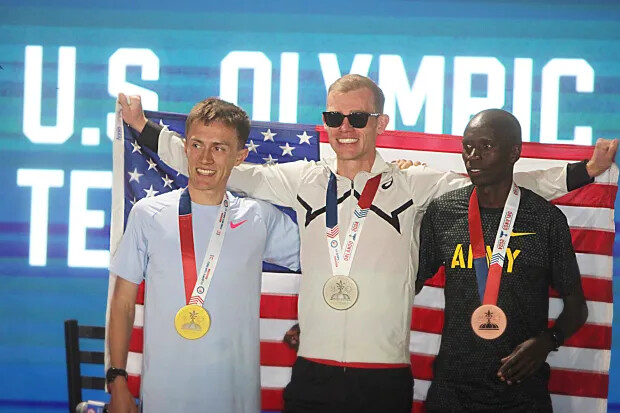
The finishing moments are among the thrilling spectacles in American running. By that point, the stadium is filled with a near-capacity crowd of roaring runners, family, and friends who have been watching the action play out on the massive video screens.
“The finish in the full stadium is like nothing else in the sport,” says Mantz, 27, who won the men’s race last year in 29:08 with a thrilling late-race surge to pass Kenya’s Alex Masai in the final 200 meters before the finish. “It was pretty electric. It took away all the pain you’re feeling mid-race. I was like, ‘Just race as hard as you can.’”
Team USA Red will have plenty of competition, from Team USA White, the secondary American team of Jared Ward, Futsum Zienasellassie, and Sam Chelanga, as well as teams from Kenya, Ethiopia, Mexico, and Rwanda. Teams are scored like a cross country race, with points awarded on the basis of finishing place, which means the team with the lowest combined score for all three runners is the winner. Ties are decided by the positions of the third-place finishers.
The women’s Team USA Red team will be led by defending champion Emily Durgin, along with Sara Hall and Boulder native Nell Rojas. Durgin finished ninth at the U.S. Olympic Trials in February and won the USATF 10 Mile Championships on April 7 in Washington D.C. At last year’s Bolder Boulder, she stormed to victory in 33:24, winning by 24 seconds over Kenya’s Daisy Kimeli.
Hall placed fifth in the U.S. Olympic Trials Marathon on February 3 in a U.S. master’s record (2:26:06) and 15th in the Boston Marathon on April 15. The women’s Team USA White roster will be composed of an all-University of Colorado alumnae squad—Makena Morley, Sara Vaughn, and Carrie Verdon.
“I can’t wait to be back in Boulder for the best day of the year,” says Durgin, 29, who will compete in the U.S. Olympic Trials 10,000 meters on the track in late June with the hopes of making the U.S. Olympic team. “Competing with Nell and Sara will make the experience even better.”
The women’s U.S. Olympic marathon team of Fionna O’Keefe, Emily Sisson, and Dakotah Lindwurm were invited to race in the Bolder Boulder but each runner declined, citing scheduling timing conflicts or a disinterest in racing at Boulder’s lofty altitude (5,430 feet). All of the runners who are racing for the U.S. teams in Boulder live at 4,500 feet or higher.
An Olympic Legacy
Boulder is known as one of the top running meccas in the U.S., in part because elite-level American and international runners have made it their training base since Olympic gold medalist Frank Shorter arrived in the early 1970s. Emma Coburn, Jenny Simpson, Yared Nuguse, Joe Klecker, Jake Riley, Hellen Obiri, and Edna Kiplagat are among the many top-level runners who are currently training in Boulder. Shorter, the 1972 marathon gold medalist, was a co-founder of Bolder Boulder 10K in 1979, and helped it grow into one of the country’s largest races.
Since then, numerous U.S. Olympians have raced in the Bolder Boulder, including Deena Kastor (a three-time women’s champion), Aliphine Tuliamuk (the 2022 women’s winner), Alan Culpepper, Elva Dyer, Ryan Hall, Abdi Abdirahman, Jorge Torres, Shalane Flanagan, Amy Cragg, Magdalena Boulet, and Libby Hickman, as well as Korir (who won it in 2022), and Ward (who was fourth in 2022).
Thanks to Boulder’s robust running community and the prestige of the race, the Bolder Boulder has also always featured fast sub-elite runners competing in the early citizen waves. Yet, the race has also celebrated dedicated middle-of-the-pack runners, as well as the first-time runners and walkers in the later waves. It was one of the first races to have bands playing along the course (as well as belly dancers and other entertainers), runners dressed up in costumes, elite wheelchair races, and in recent years, it has been known for a mid-race slip-and-slide and unofficial bacon aid station.
For the past 25 years, the Bolder Boulder has organized a special Memorial Day tribute—one of the largest in the country—that honors military veterans and new cadets.
The U.S. men’s Olympic marathon team competing in this year’s Bolder Boulder will be a legacy moment for the race, says Bolder Boulder race director Cliff Bosley.
“Having the three men that will represent our country in the marathon at this summer’s Paris Olympic Games is something we are extremely proud of,” Bosley says. “All three ran here last year, and to have them back is just incredible for the race, the city of Boulder, and the sport of running.”
by Brian Metzler
Login to leave a comment
The Road to the Paris Olympics and here is What You Need to Know.
American runners are about to begin training for the U.S. Olympic Trials Marathon
It’s early October, which means it’s the peak marathon season for many runners. But with an Olympic year on the horizon, it also means America’s top marathoners are about to hit the road to Paris.
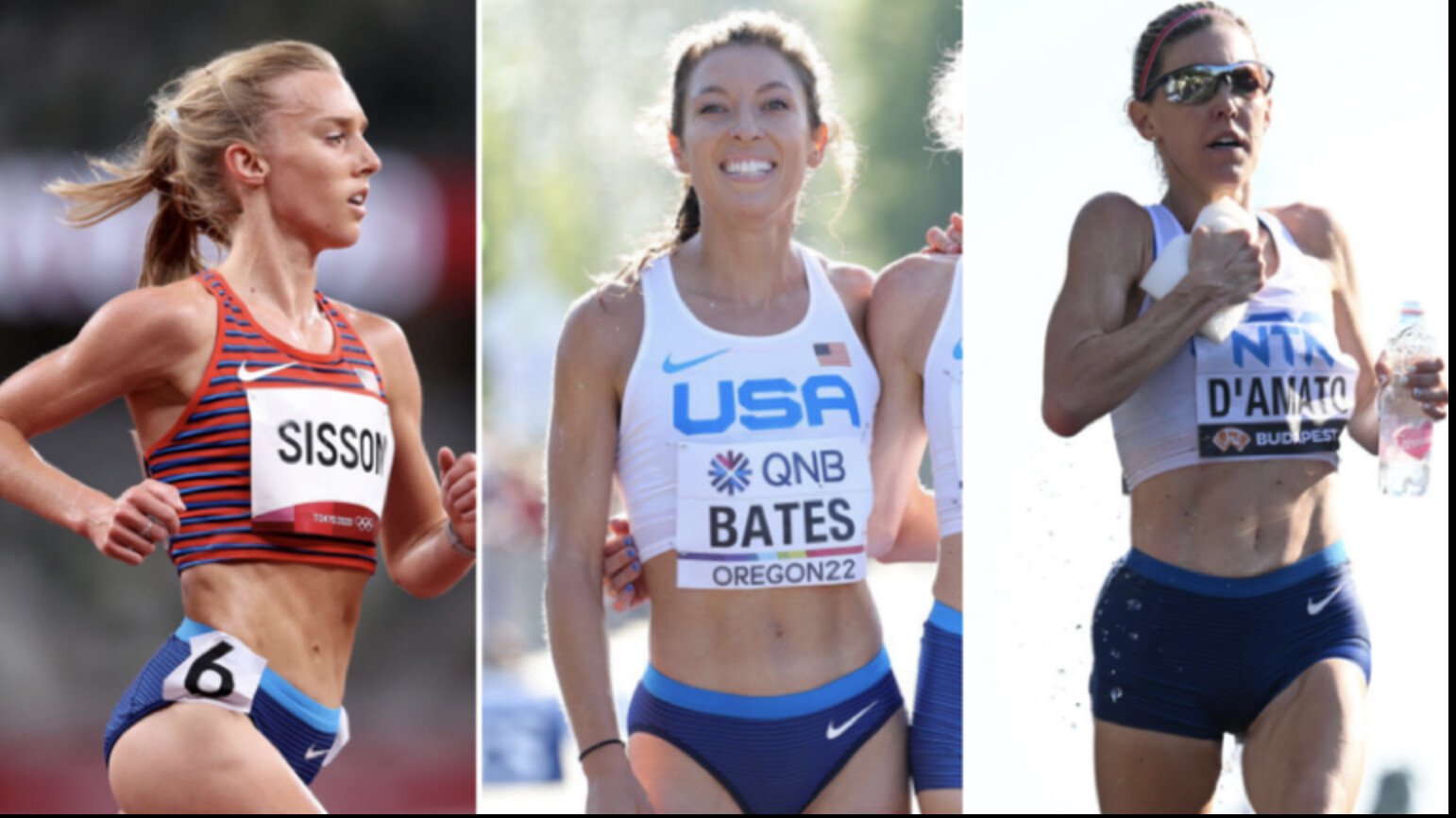
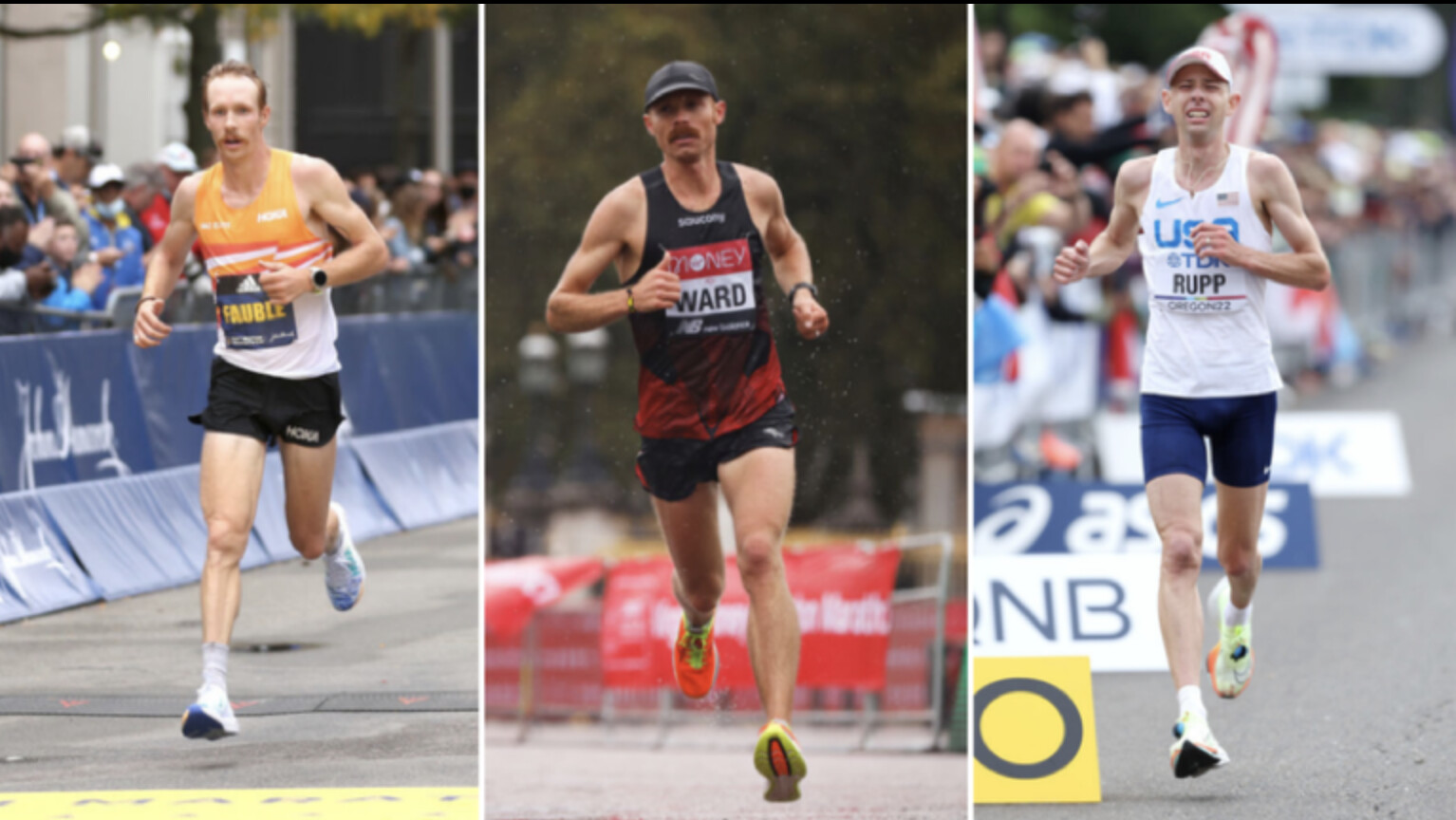
More specifically, the men’s and women’s 2024 U.S. Olympic Trials Marathon races—scheduled for February 3 in Orlando, Florida—are just four months away. And that means the top U.S. runners hoping to represent their country at next summer’s Olympics are about to begin preparing for the all-or-nothing qualifying race that decides which six runners will represent Team USA next summer on the streets of Paris.
Although several top American runners are racing the Chicago Marathon on October 8, even they have their eyes on a much bigger prize next February.
“There’s nothing in my mind that compares with being an Olympian and being in the Olympic Games,” says 26-year-old Utah-based Nike pro Conner Mantz, who returns to Chicago after finishing seventh last year in 2:08:16 in his debut at the distance. “So putting that first has been the plan for a long time. We’re just putting that first and we’re working backwards through the season with other races.”
Registration will open for the U.S. Olympic Trials Marathon in early November for runners who have surpassed the qualifying times in the marathon (2:18:00 for men, 2:37:00 for women) or half marathon (1:03:00 for men, 1:12:00 for women). The qualifying window extends through December 3—the race date of the last-chance California International Marathon, which for decades has been one of the most popular Olympic Trials qualifying races.
In 2020, a record 708 runners—465 women and 243 men—qualified for the U.S. Olympic Trials Marathon in Atlanta just before the onset of the Covid-19 pandemic. But USA Track & Field lowered the women’s qualifying standard by eight minutes from the more attainable 2:45:00 plateau, which means there will most likely be a much smaller women’s field this year.
But even so, amid the handful of runners who have a legitimate shot at making the Olympic team, there will also be dozens of dreamers, wannabes, and just-happy-to-be-there elite amateurs who have worked hard, put in the miles, and earned the chance to be on the start line of the deepest and most competitive U.S. distance-running races that only happen once every four years.
The men’s and women’s races will run simultaneously with the men beginning at 12:10 P.M. EST. and the women starting 10 minutes later. Runners have complained that a high noon start means they will be forced to race in hot, humid conditions. Over the past decade, the average temperature on February 3 in Orlando has been 69.6 degrees Fahrenheit at noon, rising to 73.3 at 4 PM. But actual temperatures have varied drastically, from 81 degrees Fahrenheit at 2 P.M. last year to 56 at the same time the year before. USATF officials have responded by saying that the start times are to accommodate live coverage on NBC and to match the expected conditions in Paris.
Here’s an update and overview of what’s next, who the top contenders are, the course, and what to expect in the next four months.
The 26.2-mile U.S. Olympic Trials course runs through downtown Orlando and consists of one 2.2-mile loop and three eight-mile loops. The marathon course will run through several neighborhoods, main streets, and business districts in Orlando, including Central Business District, City District, South Eola, Lake Eola Heights Historic District, Lake Cherokee Historic District, Lake Davis Greenwood, Lake Como, North Quarter, Lawsona/Fern Creek, SoDo District, and the Thornton Park neighborhood. It will then head east to and around The Milk District neighborhood and Main Street. (Notably, the course will come close to Disney World, which is about 15 miles to the southwest.)
Unlike the Olympic Marathon course in Paris, which will challenge runners with significant hills in the middle, the Orlando course is mostly flat. Each loop has a few minor variations in pitch, but only 38 feet separate the high and low points on the course. Ultimately, though, it’s a spectator-friendly route with chances for family, friends, and fans of runners to see the action several times.
The top women—based on personal best times and recent race results—are Emily Sisson, Emma Bates, Keira D’Amato, Betsy Saina, and Lindsay Flanagan. But the U.S. Olympic Trials races almost always produce surprises with a few great runners having off days and a few good runners having exceptional days, so there is reason to expect the unexpected.
Sisson lowered the American record to 2:18:29 last year when she finished second in the Chicago Marathon. She’s running Chicago again on October 8 along with Bates, who has said she’s hoping to break the American record. In January, Sisson, 31, chopped her own American record in the half marathon in Houston with a 1:06:52 effort, and most recently won the U.S. 20K Championships (1:06:09) on September 4 in New Haven, Connecticut. Bates, also 31, hasn’t raced at all since her sterling fifth-place effort at the Boston Marathon in April, when she slashed her personal best to 2:22:10.
While Chicago will be another good place to test themselves, both have unfinished business after Bates was seventh at the 2020 Trials and Sisson dropped out near the 21-mile mark.
The same goes for Flanagan, 32, who has been one of America’s best and most consistent marathoners for the past five years. She placed 12th at the trials in 2020. She had a breakthrough win (2:24:43) at the Gold Coast Marathon in 2022 followed by a strong, eighth-place finish (2:26:08) at the Tokyo Marathon earlier this year. In August, she ran perhaps the best race of her career, when she finished ninth (2:27:47) at the world championships in Budapest amid hot, humid conditions.
The 38-year-old D’Amato, meanwhile, just capped off another strong season with a 17th-place showing (2:31:35) at the World Athletics Championships in Budapest, a year after finishing eighth in the world championships and setting an American record 2:19:12 at the 2022 Houston Marathon. She was 15th at the Trials in 2020 in 2:34:24, just two years into her competitive return to the sport after having two kids and starting a career in real estate in her early 20s.
“It’s such a huge goal of mine to become an Olympian,” says D’Amato, who lowered Sisson’s U.S. record in the half marathon with a 1:06:39 effort at the Gold Coast Half Marathon on July 1 in Australia. “It’s really hard for me to put words into this because my whole life, wearing a Team USA jersey has been like a huge dream. And when I left the sport (temporarily), I felt like I said goodbye to that dream and I kind of mourned the loss of being able to represent my country. I feel like it’s the greatest honor in our sport to be able to wear our flag and race as hard as possible.”
Saina, a 35-year-old Kenya-born runner who ran collegiately for Iowa State University, became a U.S. citizen in late 2021. She placed fifth in the 10,000-meters at the 2016 Olympics in Rio de Janeiro while competing for Kenya. She’s spent the past several years splitting time between Kenya and Nashville, Tennessee, where she gave birth to a son, Kalya, in December 2021.
She’s returned with a strong fourth-place 1:11:40 result at the Tokyo Half Marathon last October and a fifth-place 2:21:40 showing at the Tokyo Marathon in February. In May, Saina won the U.S. 25K Championships in Michigan. Two weeks ago she broke the tape at the Blackmores Sydney Marathon in Australia in 2:26:47.
Other top contenders include but are not limited to Tokyo Olympics bronze medalist Molly Seidel (who’s personal best is 2:24:42), 2022 U.S. Olympic Trials champion Aliphine Tuliamuk (2:24:37, 11th in Boston this year), Susanna Sullivan (2:24:27 personal best, 10th in London this year), two-time Olympian and 2018 Boston Marathon winner Des Linden (2:22:38), and Sara Hall (2:20:32, fifth at last year’s world championships), plus Kellyn Taylor (2:24:29), Nell Rojas (2:24:51), Sarah Sellers (2:25:43), Lauren Paquette (2:25:56), Dakotah Lindwurm (2:25:01), Annie Frisbie (2:26:18), Sara Vaughn (2:26:23), Tristin Van Ord (2:27:07), and Jacqueline Gaughan (2:27:08).
The list of potential men’s top contenders isn’t as clear-cut, partially because there are so many sub-2:11 runners and several fast runners who are relatively new to the marathon. But all that suggests a wide-open men’s race where more than a dozen runners are legitimately in the mix for the three Olympic team spots. That said, the top runners on paper, based on both time and consistent results over the past few years, are Scott Fauble, Jared Ward, Galen Rupp, Conner Mantz, Leonard Korir, Matt McDonald, and C.J. Albertson.
The 31-year-old Fauble, who was 12th in the Olympic Trials in 2020 and owns a 2:08:52 personal best, has finished seventh in the Boston Marathon three times since 2019 and also finished seventh in the New York City Marathon in 2018. Ward is a 2016 U.S. Olympian and has three top-10 finishes at the New York City Marathon and a 2:09:25 personal best from Boston in 2019. He’s 35, but he just ran a 2:11:44 (27th place) at the Berlin Marathon in late September.
Rupp, who won the past two U.S. Olympic Trials Marathons and earned the bronze medal in the marathon at the 2016 Olympics, is nearing the end of his competitive career. He boasts a 2:06:07 personal best and has run under 2:10 more than any American in history, including when he finished 19th at the world championships (2:09:36) last year. He’s a bit of a wild card because he’s 37 and hasn’t raced since his lackluster 17th-place showing at the NYC Half Marathon (1:04:57) in March, but the world will get a glimpse of his fitness in Chicago this weekend.
Mantz followed up his solid debut in Chicago last fall with a good Boston Marathon in April (11th, 2:10:25) and solid racing on the track and roads all year, including his recent runner-up showings at the Beach to Beacon 10K in August and the U.S. 20K Championships in September.
McDonald, 30, who was 10th in the 2020 U.S. Olympic Trials, has quietly become one of the best marathoners in the U.S. while serving as a postdoctoral associate in chemical engineering at M.I.T. His last three races have clocked in at 2:10:35 (Boston 2022), 2:09:49 (Chicago 2022), and 2:10:17 (Boston 2023). The only other runner who rivals that kind of consistency is Albertson, 29, who has run 2:10:23 (Boston 2022), 2:10:52 (Grandma’s Marathon 2022) and 2:10:33 (Boston 2022) in his past three marathons and was seventh in the U.S. Olympic Trials in 2020 (2:11:49).
The men’s race will likely have a mix of veteran runners and newcomers who have run in the 2:09 to 2:10 range since 2022. Among those are 2020 U.S. Olympic Trials runner-up Jake Riley (2:10:02 personal best), who is returning from double Achilles surgery; 2016 U.S. 10,000-meter Olympian Leonard Korir (2:07:56), who ran a 2:09:31 in Paris in April; Zach Panning (2:09:28, plus 13th at the world championships in August); U.S. 25K record-holder Parker Stinson (2:10.53); Futsum Zienasellassie who won the California International Marathon last December in his debut (2:11:01) and then doubled-back with a new personal best (2:09:40) at the Rotterdam Marathon in the spring; Abbabiya Simbassa, who ran a solid debut marathon (2:10:34) in Prague this spring; and Eritrean-born Daniel Mesfun (2:10:06) and Ethiopian-born Teshome Mekonen (2:10:16), who both received U.S. citizenship within the past year; and solid veterans Nico Montanez (2:09:55), Elkanah Kibet (2:10:43) and Nathan Martin (2:10:45).
Additional sub-2:12 runners who will be in the mix are Andrew Colley (2:11:26), Clayton Young (2:11:51), Brendan Gregg (2:11:21), Josh Izewski (2:11:26), Jacob Thompson (2:11:40), and Kevin Salvano (2:11:49).
As noted previously, some top contenders will season their marathon legs one final time at the flat and fast Chicago Marathon on October 8. An even more select few will opt for the New York City Marathon on November 5. After that, nearly every American with eyes set on an Olympic berth will double-down over the holiday season for that one final, critical marathon training cycle. Expect to see a wide range in heat training, from sauna protocols, to warm weather training trips, to simply an adjusted race day strategy.
Of course, with the Olympic Marathon falling under the purview of World Athletics, qualifying for the U.S. Olympic Marathon team is not quite as simple as finishing on the podium in Orlando. Any American looking to have a breakout performance and finish within the top three at the U.S. Olympic Trials Marathon will need to have run under 2:11:30 for men and 2:29:30 for women within the qualification window, which spans from November 1, 2022 to April 30, 2024. Given the possibility of oppressively hot and humid temps on February 3 in Orlando, they’re best bet is to secure that time now.
These qualification standards are in accordance with a new rule from World Athletics, which allows national Olympic committees to circumvent the typical Olympic qualification process of running under 2:08:10 for men and 2:26:50 for women, or being ranked among the top 65 in the world on a filtered list of the top three athletes from each country. The catch, though, is that three other runners from said country must have met one of these two standards. If this sounds complicated, that’s because it is.
For the hundreds of elite amateurs on the cusp of hitting that coveted U.S. Olympic Trials qualifying time, it’s do or die mode. While a few made the cut at the Berlin Marathon on September 24, one of those opportunities was lost when the Twin Cities Marathon was canceled on October 1 because of excessive heat. Temperatures are shaping up for an auspicious day in Chicago this weekend, and many more will give it a final shot at the Columbus Marathon on October 15; Indianapolis Monumental Marathon on October 28; the Philadelphia Marathon on November 18; and the last-call California International Marathon, a point-to-point race ending in Sacramento, California on December 3.
Ultimately, only six American runners will likely continue on along the road to Paris and earn the chance to run in the men’s and women’s Olympic marathons next August 10-11. For a handful of younger runners, the 2024 U.S. Olympic Trials will be a motivation to reinvigorate the Olympic dream or keep a faint hope alive, at least until the 2028 U.S. Olympic Trials that will determine the team for the Los Angeles Olympics. But for many runners, the journey to the U.S. Olympic Trials in Orlando will lead to the end of their competitive road running careers as new jobs, young families, a switch to trail running, and other priorities will take hold.
“I think the Olympic Trials is an important part of American distance running,” says Kurt Roeser, 36, a two-time U.S. Olympic Trials Marathon qualifier who works full-time as a physical therapist in Boulder, Colorado. “I’m glad that they kept it the same event for this cycle and hopefully for future cycles because it gives people like me a reason to keep training. I’m older now and I’m not going to actually have a chance to make an Olympic team, but for somebody that’s fresh out out of college and maybe they just barely squeak in under the qualifying time, maybe that’s the catalyst they need to start training more seriously through the next cycle. And maybe four years from now, they are a serious factor for making the team.”
by Outside Online
Login to leave a comment
10 Things to Know About the 2023 Berlin Marathon
Here’s how you can watch the race, track runners, and register for next year
More than 45,000 runners are expected to participate in the Berlin Marathon on September 24 in Germany’s capital city. It’s the 49th edition of the race and one of the six World Marathon Majors races along with races in Chicago, New York, Boston, London and Tokyo. The weather forecast is calling for cloudy and cool conditions on race morning in Berlin, so fast times are once again expected.
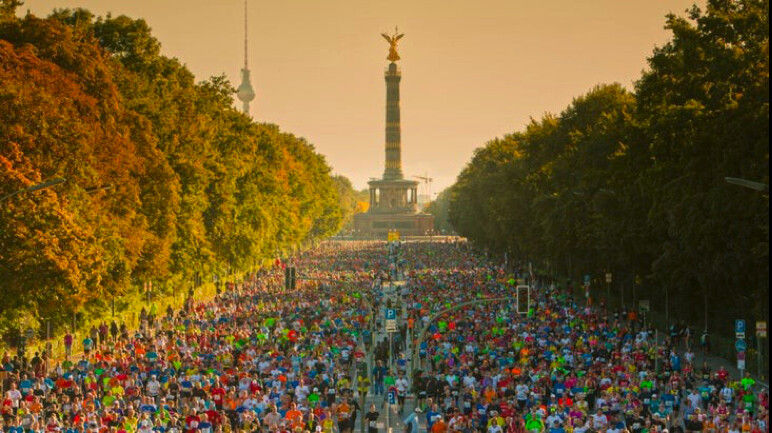
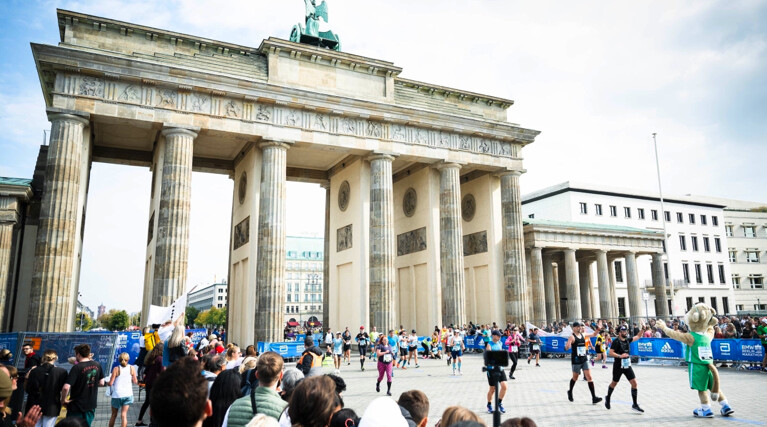
Here’s a rundown of 10 noteworthy elements about this year’s race.
The Berlin Marathon has produced 12 world records—more than any other marathon—since its inception in 1974, including the past eight men’s records since 2003. Kenya legend Eliud Kipchoge lowered the world record for the fastest official marathon ever run (2:01:09) last year in Berlin, and it’s also where he ran the previous world record (2:01:39) in 2018.
Berlin has produced six of the top 10 fastest men’s times in history, including three of the four sub-2:02 efforts (including the 2:01:41 run by Kenenisa Bekele in 2019). It hasn’t been quite as fast for women, however it has been the site of three women’s world records, most recently when Japan’s Naoko Takahashi ran the world’s first sub-2:20 marathon (2:19:46) in 2001. Last year, Ethiopia’s Tigst Assefa won the women’s race in 2:15:37, which, at the time, was the second-fastest marathon ever run and now ranks fifth.
Berlin is the flattest course of all the World Marathon Majors, with a total elevation gain of 241 feet and loss of 260 feet. (The biggest “hills” come between miles 16 and 20, but they max out at less than 30 feet of gain.) Berlin annually produces some of the fastest pro results in the world, in part because it’s a flat course, but also because the race organization provides pacemakers (auxilliary runners who set an optimal pace but only run about a portion of the course before dropping out) so the opportunity for fast times are assured. (There are no pacemakers at the Chicago, New York City Marathon, and Boston Marathon, so those races play out only by the tactics of the runners in the field.) But the fast elite times, flat course, and typically cool weather conditions have attracted age-group runners targeting new PRs, too.
Running legend Eliud Kipchoge, universally accepted as the G.O.A.T. of marathoning, has won 15 of the 18 marathons he has entered, including the past two Olympics. Berlin is where he’s had most of this success, dating back to his first victory in 2015 and he has since also won there in 2017, 2018, and 2022. Can he add one more victory to his total?
He lowered his own world record to 2:01:09 last year by averaging 14:21.4 per 5K, or 4:37 per mile. However, the 38-year-old Kenyan is coming off an uncharacteristically disappointing race at the 2023 Boston Marathon, where he finished sixth in 2:09:23. Will he approach another world record? “My aim is to always run a good race,” he said recently. “Berlin is like home for me. In view of the Olympic Games next year in Paris, I thought about which race could be the best preparation for the Games for me, and Berlin is the best option.”
Including Kipchoge, the men’s field in Berlin includes 10 runners who have run faster than 2:06 and seven more who have broken 2:07, including last year’s runner-up Mark Korir (2:05:58). Kipchoge should be challenged by fellow Kenyan Amos Kipruto, who owns a 2:03:13 from his runner-up showing at last year’s Tokyo Marathon. The winner of the 2022 London Marathon last fall (2:04:39), Kipruto, 31, placed a distant second in the 2018 Berlin Marathon behind Kipchoge (2:06:23) and owns a bronze medal in the marathon from the 2019 World Athletics Championships in Doha.
Other top runners in the field include Kenya’s Geoffrey Kamworor, who ran 2:04:23 to place second at the London Marathon in April, Ethiopia’s Birhanu Legese, who was second (2:02:48) in Berlin in 2019 and Kenya’s Wilson Kipsang, 41, a former winner in Berlin, New York, and Tokyo. However, Kipsang, who lowered the world record to 2:03:23 on the Berlin course in 2013, is coming off a four-year ban for missing drug tests in 2018 and 2019.
Last year, Ethiopia’s Tigist Assefa, a 2016 Olympian in the 800-meter run, entered the race as an untested marathon (with a PR of 2:34:01) and surprised everyone with her 2:15:37 victory in the third-fastest time ever.The 26-year-old is back this year but hasn’t run any races because she’s been sidelined with a few nagging injuries.
Her biggest competitor will likely be Sheila Chepkirui, who holds a personal best of 2:17:29 from last December’s Valencia Marathon. She’s a former African Cross Country Championships winner and was the bronze medalist in the 10,000-meter run at the 2022 Commonwealth Games. Other top women runners include Ethiopians Tigist Abayechew (2:18:03), Workenesh Edesa (2:18.51), and Hiwot Gebrekidan (2:19:10).
Scott Fauble, a three-time seventh-place finisher at the Boston Marathon (including this year in 2:09:44), is racing Berlin with the hopes of securing the Olympic-qualifying standard of 2:08:10. The 31-year-old runner from Portland, Oregon, will still need a top-three finish at the U.S. Olympic Trials Marathon on February 4 in Orlando, but securing the time will give him a leg up on qualifying for the Paris Olympics next summer.
Also racing in Berlin are 2016 U.S. Olympian Jared Ward (Provo, Utah) and 2020 U.S. Olympian Jake Riley (Boulder, Colorado). Ward, 35, owns a 2:09:25 personal best, but he hasn’t run faster than 2:12 since his sixth-place finish (2:10:45) in the New York City Marathon in 2019. The 34-year-old Riley, who owns a 2:10:02 PR, is coming back after having double Achilles surgery in July 2022 to correct Haglund’s syndrome (the second time in his career), and hopes to run in the 2:12-2:14 range. Ethiopian-born Teshome Mekonen, who recently received U.S. citizenship, will also be racing in Berlin. The 28-year-old, who lives in New York City, has a 1:00:02 half-marathon personal best and lowered his marathon personal best to 2:11:05 last January in Houston.
Annie Frisbie is the top American runner in the women’s field in Berlin. The 26-year-old from Hopkins, Minnesota, made her marathon debut at the 2021 New York City Marathon with an impressive seventh-place finish (2:26:18). She’s continued to run well since then, placing 20th (2:28:45) in the 2023 Boston Marathon (2:28:45) and most recently finishing fifth (1:07:27) at the U.S. 20K Championships on September 4 in New Haven, Connecticut. Frisbie was a Wisconsin state champion runner in high school and an All-American runner for Iowa State University.
The Berlin Marathon was started in 1974 by Horst Milde, a German baker and running enthusiast. When it began at the height of the Cold War and East Berlin being sealed off by a wall, the marathon was run only in West Berlin. Since 1990, it has started and ended near the Brandenburg Gate, sending runners on a jagged loop through the city—including the neighborhoods of Charlottenburg, Tiergarten, Moabit, Mitte, Friedrichshain, Kreuzberg, Neukölln, Schöneberg, Friedenau, and Zehlendorf. Runners will pass tourist sites like the Reichstag building, the Siegessäule (Victory Column), Berlin Cathedral, and Potsdamer Platz. Live music is played at more than 60 locations along the course, including at all the famous landmarks.
The inaugural Berlin Marathon had 244 finishers; 234 men and 10 women, and was won by Günter Hallas (2:44:53) and Jutta von Haase (3:22:01), respectively. Last year, the race had 34,788 finishers, including 23,280 men (67 percent) and 11,508 women (33 percent). The last German runners to claim victory were Irina Mikitenko (2:19:19) in 2008 and Ingo Sensburg (2:16:48) in 1980. No American man or woman has ever won the Berlin Marathon.
The Berlin Marathon has an inline skating division for 500 participants that begins at 3:30 P.M. after all runners are cleared from the course. The skater course record of 56:46 was set last year by Belgian Bart Swings, and he’s back this year aiming for his ninth victory. In the women’s race, all eyes are on last year’s winner, Marie Dupuy of France, in 1:11:19. All finishers of the inline skating division are eligible to enter the 2024 Berlin Marathon as runners.
The race, which starts at 9:15 A.M. local time (or 3:15 A.M. ET in the U.S.), will be broadcast worldwide by several TV partners, but not in North America. However, several websites offer live streaming so people can watch the Berlin Marathon from anywhere in the world, especially if you’re a VPN subscriber. Watch Athletics will be broadcasting the race online in real time for free, while FloTrack’s livestream requires a subscription ($29.99 for one month) in order to view their livestream. Runners can be tracked via the Berlin Marathon website’s Results page, or via the BMW Berlin Marathon App app available on Apple or Google Play.
Race day begins with the elite handbike division at 8:50 A.M., followed by the wheelchair and handcycle divisions at 8:57 A.M. Runners are sent off in four waves beginning at 9:15 A.M., starting with the men’s and women’s elite waves. The race has a strict time limit of 6 hours, 15 minutes as well as course closure times at the 33K/20.5-mile mark (3:50 P.M.) and 38K/23.6-mile mark (4:35 P.M.). Runners who have not reached those points by those times can continue on the sidewalks alongside the course or get a ride on the course-sweeping bus.
Entry to the 2024 Berlin Marathon, which is slated for September 29, 2024, will be done via a lottery that will open in October. You can enter the lottery as a solo runner or as a team consisting of two or three people. (If the team is drawn, all persons from the team are included.) Lottery dates for 2024 have not yet been announced, but the draw for the 2023 edition took place in December 2022.
If you’re selected, the registration fee will be about $160 euros. You can also secure a guaranteed spot in the race based on previous marathon times. In 2023, female runners up to 44 years old qualified if they ran faster than 3:00; female runners up to 59 years old qualified if they ran under 3:20; and female runners over 60 years qualified if they ran under 4:10. For men, the qualifying times were 2:45 (up to 44 years old), 2:55 (46-59 years old), 3:25 (60 and older.)
If you don’t get in through the lottery, you may still be able to get into the race via a charity bib or through tour operators.
by Outside online
Login to leave a comment
Scott Fauble Is Aiming for the Olympic Standard at Berlin Marathon
Fauble will hope to become first American man to hit 2:08:10 Olympic standard in Sunday’s race
Scott Fauble was not planning on running a fall marathon in 2023. On April 17, he finished 7th at the Boston Marathon to earn top American honors — just as he did in Boston and New York in 2022. His time of 2:09:44 represented the fourth sub-2:10 of his career, making him just the seventh American to accomplish that feat after Ryan Hall, Galen Rupp, Meb Keflezighi, Khalid Khannouchi, Alberto Salazar, and Mbarak Hussein. In previous years, a top-10 finish at a World Marathon Major counted as an automatic qualifying standard for the Olympic marathon; Fauble, with three straight top-10 finishes on his resume, figured he was in good position for Paris and could shift his focus to the US Olympic Trials in February 2024.
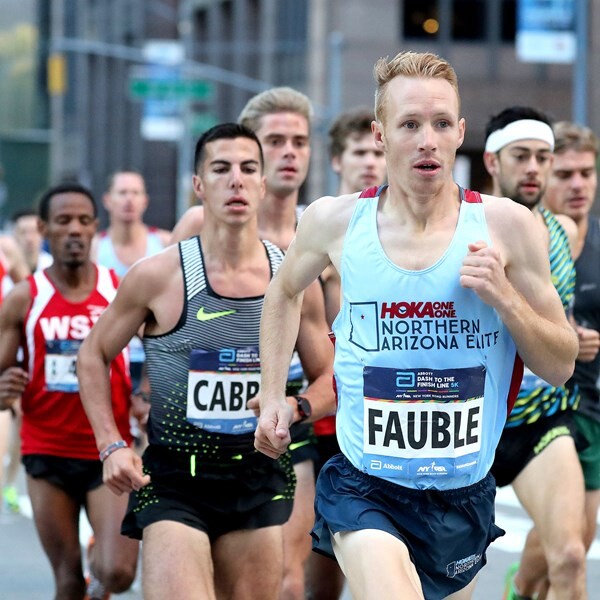
But the Olympic qualifying system for 2024 is far more complicated than in previous years, with ever-shifting world rankings and things like “quota reallocation places” creating confusion among fans and athletes alike. Any athlete ranked in the top 65 of the filtered “Road to Paris” list on January 30, 2024, is considered qualified…except the “Road to Paris” list does not currently exist. After Boston, Fauble, who is currently ranked 122nd* — that’s in the world rankings, which is a different list than “Road to Paris” — tried to take a closer look at where he stood, creating spreadsheets and projecting where he might rank after accounting for time qualifiers, the three-athlete-per-country limit, and potential changes after the 2023 fall marathon season. After a while, his brain began to hurt.
“I felt like the Pepe Silvia meme from It’s Always Sunny in Philadelphia,” Fauble said. “…It was like, this is complicated and stressful and I can just get the standard. This doesn’t need to be an issue.”
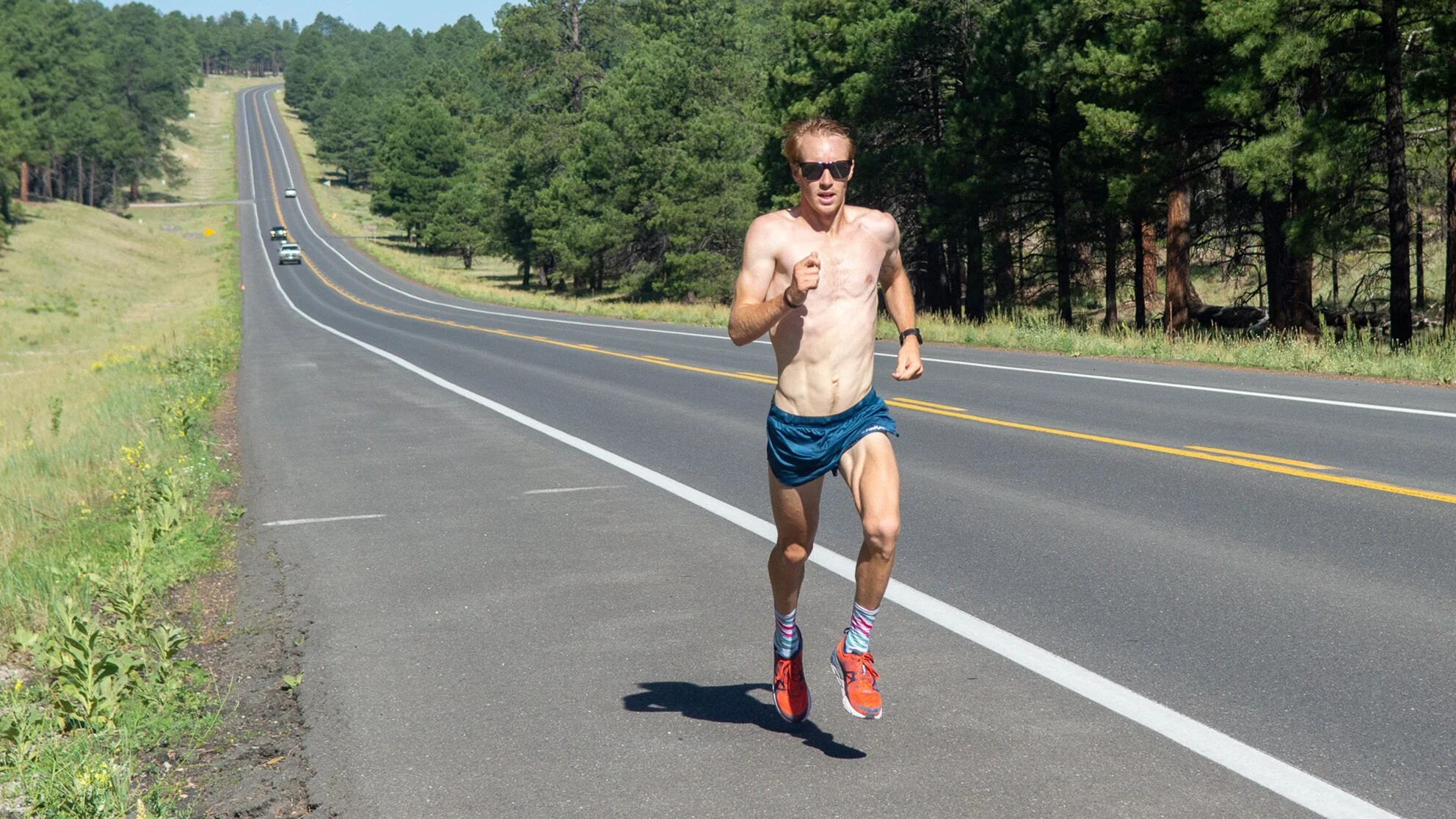
That is why Fauble, begrudgingly, made the decision to run the Berlin Marathon. He was not initially looking forward to the race, but with a strong training block in Boulder behind him and the race just four days away, he has changed his tune.
“I’m very excited,” Fauble said. “I wasn’t planning on doing a fall marathon after Boston and I had to figure out ways to get excited for it and I think that’s one of the things that has fired me up, actually seeing how fast I can go and pushing for a PR as opposed to letting the race play out and seeing what I can do.”
Chasing a time is a dramatically different approach to Fauble’s typical marathon M.O. Of the nine marathons he has run, only two have featured pacemakers: his debut in Frankfurt in 2017, and the Marathon Project in 2020. When Fauble runs Boston and New York, the hilly courses where he has found the greatest success, he does not enter with a goal time in mind. Instead, Fauble will wait until the race begins and assess a number of factors — the weather, how he’s feeling, how fast the other runners are going — before deciding which pace to run. Typically, that has led to Fauble letting the leaders go early and picking off stragglers as they fade over the second half of the race.
Berlin will be different. There are no hills to account for, and while Fauble will still fight for every place, he is not hiding the fact that the primary goal of this race is to hit a time. Specifically, the Olympic standard of 2:08:10. Only five Americans have ever bettered that time in history, but Fauble, who ran his personal best of 2:08:52 in Boston in 2022, believes he is capable of doing it.
“I don’t think that me running in the 2:07s is a huge stretch of the imagination,” said Fauble, who has removed some of the hillier routes from his training under coach Joe Bosshard but has otherwise prepared similarly for Berlin as he would Boston or New York. “I think I’ve been in that kind of shape a bunch of times.”
Every American marathoner will be rooting for Fauble
Currently, no male American marathoner has earned the 2024 Olympic standard — either by hitting the time standard of 2:08:10 or by finishing in the top five of a Platinum Label Marathon (which includes Berlin). It’s pvery likely someone such as Fauble or Conner Mantz will be ranked in the top 65 of the “Road to Paris” list at the end of January, but with the Olympic Trials less than five months away, US marathoners are getting antsy.
American pros rarely run the Berlin Marathon, typically opting for Chicago or New York in the fall — both of which pay much bigger appearance fees to American runners. But this fall, many are bypassing New York because of the date (just 13 weeks before the Trials) and the course (too slow for a shot at the Olympic standard). A sizeable crew, led by Mantz and Galen Rupp, will be in Chicago, while a far larger number than usual have opted for Berlin.
Berlin’s course is just as fast as Chicago’s, if not faster. It’s also two weeks before Chicago — an extra two weeks to prepare for the Trials — and the weather is typically a little better in Berlin than Chicago. That’s why Keira D’Amato opted for Berlin over Chicago for her American record attempt last year. It’s also why 60:02 half marathoner Teshome Mekonen — another American targeting the Olympic standard this fall — chose Berlin over Chicago.
In addition to Fauble and Mekonen, the 2023 Berlin field also includes 2016 Olympian Jared Ward, 2021 Olympian Jake Riley, and Tyler Pennel, who has finished 5th and 11th at the last two Olympic Marathon Trials. All of them will be looking to run fast. And every other American marathoner will be hoping they do the same.
That’s because of a new provision in the Olympic qualification system which states that any country with three qualified athletes may choose to send any three athletes it wants to Paris — as long as they have run at least 2:11:30 (men) or 2:29:30 (women) within the qualifying window. That’s why every American will be rooting for Fauble and others to run fast this fall: if the US has three athletes with the standard, then anyone who has run under 2:11:30 has the opportunity to make the team by finishing in the top three at the Trials.
The above provision, which World Athletics is referring to as “quota reallocation” means that someone such as Fauble could run the Olympic standard and open up a spot in Paris for an American athlete who ends up beating him at the Trials — thus taking a spot that would not otherwise be available had Fauble not run the standard. Fauble, obviously, is hoping such a scenario does not come to pass. But he is aware of the possibility and has accepted it as part of his reality.
“I don’t mind it,” Fauble said. “Sports have never really been about identifying the best team or the best athlete. They’re an entertainment product and they overemphasize very specific days on the calendar. Even if I was the only one with the standard and I get beat at the Trials, the 73-9 Warriors didn’t win the NBA title that year. You’ve gotta do it on the big days. That’s what being a professional athlete is about.”
by Jonathan Gault
Login to leave a comment
BMW Berlin Marathon
The story of the BERLIN-MARATHON is a story of the development of road running. When the first BERLIN-MARATHON was started on 13th October 1974 on a minor road next to the stadium of the organisers‘ club SC Charlottenburg Berlin 286 athletes had entered. The first winners were runners from Berlin: Günter Hallas (2:44:53), who still runs the BERLIN-MARATHON today, and...
more...Who is Ready? Who is Not? What the Pros Said at Boston Marathon Media Day
2022 Boston Marathon and it’s time to get excited. The weather is nice, the trees are starting to bloom (well, some of them), and two dozen of the world’s best distance runners have descended upon the Hub for the most loaded Boston Marathon in race history.
LetsRun.com will have boots on the ground all weekend, and we had a chance to talk to a number of top athletes, agents, and coaches at this morning’s media availability ahead of Monday’s race. The B.A.A. announced two race updates, with 2017 champ Geoffrey Kirui scratching from the marathon and US 10,000m champ Emily Sisson scratching from Saturday’s B.A.A. 5K. Here are the other things we learned on Friday from speaking to Molly Seidel, Peres Jepchirchir, Geoffrey Kamworor, CJ Albertson, and many more.
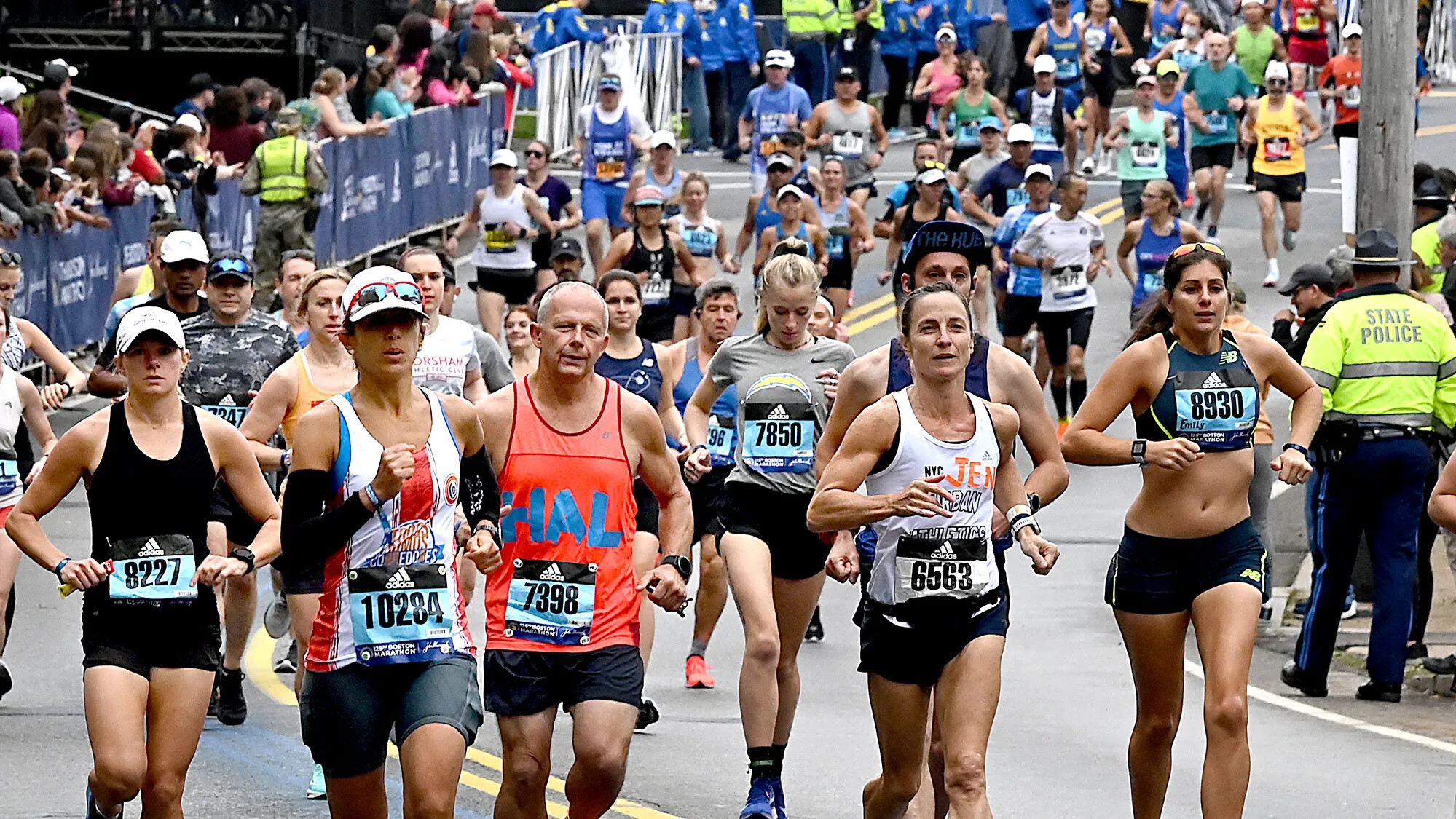
Molly Seidel says she has had some privacy concerns with her Strava account but is feeling excited and fit for Boston
Seidel will run two marathons in the first seven months of 2022, with Boston on Monday and the World Championship marathon in Eugene in July, and she and coach Jon Green have built their strategy for the year around those two races.
“We were looking [at] Boston as coming into this with a lot of strength and using this to try and carry through and hone the speed for Worlds,” Seidel said. “Right now I feel like we’ve set it up really well like that, and I’m hoping that the speed’s gonna be there. Fingers crossed.”
Seidel will likely need that speed over the final, mostly downhill 10k in Boston, as that is where the race is often broken open. And with two top half marathoners leading the field – World Half champ Peres Jepchirchir and former HM world record holder Joyciline Jepkosgei – the pace could get very hot at the end of the race.
Challenging for the overall win will be tough, but Seidel said she is excited to race the best in the world on Boston’s hallowed course.
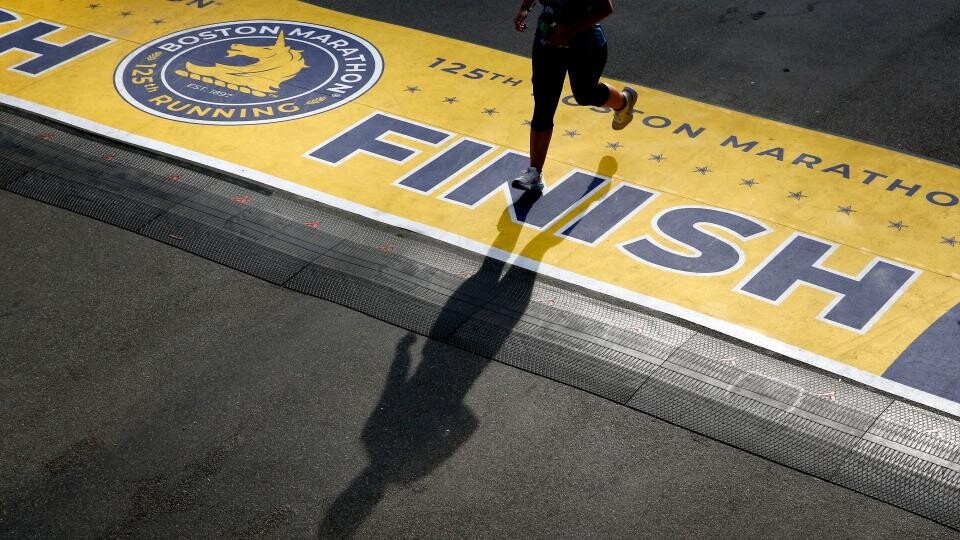
“Obviously intimidated, they’re incredible, and I’ve gotten my ass kicked by Peres the two times I’ve raced her,” Seidel said. “But getting to be in a race with a huge amount of competition like that, women with incredible credentials, that fires me up like nothing else.”
Seidel’s buildup wasn’t perfect, as she dealt with a hip impingement about a month ago and had to miss the NYC Half as a result. But she’s logged multiple 130+ mile weeks since then, which you can tell by visiting her Strava page. And while it’s great for most of the running community to be able to see what an Olympic medalist does for training – transparency that Seidel says she values – recently, she has met with some of the Strava staff out of concerns that some people have been using the data to figure out where she lives.
“It can be a lot sometimes, realizing you’ve got 60,000 people following your every move and a little bit scary sometimes when people start tracking that,”’ Seidel said. “So it’s something that I’m still figuring out, honestly. And I’ve wavered back and forth on getting off the platform, mainly because of that.”
Geoffrey Kamworor (photo) is all-in on the marathon and ready to go in his Boston debut
For the first decade of his professional career, Kamworor developed a reputation as a man for all seasons. He ran 12:58 and 26:52 on the track and earned a silver in the 10,000 at Worlds, won World XC twice, and won the World Half three times. He also mixed in two NYC Marathon titles during that span, but the marathon was never his full focus.
That, says his agent Valentijn Trouw, has now changed. Boston will be Kamworor’s first spring marathon since 2014, and he has already committed to the World Championship marathon in July. At this point, he is all-in on the marathon.
And that could be a scary prospect for the rest of the field. Kamworor’s 2:05:23 pb may only be 10th-best in the field, but he ran that in Valencia in December in a race Kamworor had barely been able to train for due to an ankle injury. For this buildup, Trouw said, Kamworor did not miss a step.
While the deep men’s field is pretty wide-open on paper, one prominent agent we spoke to (not Trouw) said he views Kamworor as the favorite due to his two NYC wins and his killer speed in the half marathon – two assets that should help significantly in Boston.
Defending champ Benson Kipruto ready to take on some big names
Kipruto was a surprise winner last year, but will not be able to sneak under anyone’s radar this year. He gave the platitudes about being “happy to be back” this year. But he said his training has gone well and the goal is the same as last year — to win, despite the field being stronger this year. “There are some strong guys, but I don’t care…my preparation was good.”
CJ Albertson isn’t a 2:06 guy yet, but he’s trying to think of himself that way
Albertson has run some insane efforts in practice, including a 2:09 marathon on a treadmill in 2020 and a 2:10:28 “split” three weeks ago at the Modesto Marathon (his result is listed officially as 2:11:56, but the lead bike led Albertson the wrong way, causing him to run extra distance). Yet Albertson’s official marathon personal best is still 2:11:18 from the Marathon Project in 2020. Is he leaving his best efforts in practice? Albertson doesn’t view it that way.
“At some point, I’m gonna run fast,” he said. “Hopefully it’s on Monday.”
Albertson also had an interesting perspective when we asked about all those hard efforts in practice. They might seem crazy for a guy whose official pb is 2:11, but Albertson said his goal is to run 2:06 one day and that he tries to think of his training in that context.
“Whatever you want to be, you have to mentally be there first before you’re actually there,” Albertson said. “I want to work out and train like I am an American record holder. Because one day I’m going to be or I’ll have a shot to be in that position and those two weeks before aren’t gonna matter, it’s gonna be what I did the five years leading up to it…The workouts that I’m doing, if you look at me like an American record holder and it’s like, he’s going out and running 5:00 pace on the weekends, it’s no big deal.”
He had one of those workouts on Sunday, running 4:50 pace (2:06:43 marathon pace) for 15 miles and feeling great doing it.
As for Monday, Albertson, who led for the first 20 miles last year and ultimately finished 10th, said he will likely go out hard again but expects he will have more company this time given the strength of the field and great conditions in the forecast.
Colin Bennie is running Monday’s race for the Play Ball Foundation while his contract situation with Reebok is sorted out
Bennie was the top American at last year’s Boston Marathon, finishing 7th in 2:11:26. It is a bit of a surprise, then, that he will not be racing on Monday in the colors of the Reebok Boston Track Club. The reason why is a bit complicated. Reebok has been undergoing an ownership change, and in March was officially sold by adidas to Authentic Brands Group. Bennie’s Reebok contract was up at the end of 2021, and as a result he’s in limbo as Reebok did not want to offer a new contract in the midst of an ownership change. The new owners are still figuring out what to do with the Reebok Boston Track Club, but Bennie is hopeful that the group’s strong recent performances, such as Josette Norris’ 5th-place finish in the 1500 at World Indoors, are proof that the team is still worth supporting (he is still training with the team and coach Chris Fox in Virginia).
“There’s been good support throughout,” Bennie said. “These things just do take time.”
With no sponsor for the moment, Bennie, a Massachusetts native, will be running Monday’s race for the Play Ball Foundation, a local charity dedicated to providing sports opportunities to middle schoolers in underserved communities. Play Ball’s logo is the letters PB in large, blue font – good letters for a marathoner.
“It’s a very good thing to have on you on race day,” Bennie said.
Jake Riley and Jared Ward are hoping things turn a corner for them in Boston
Riley and Ward are both US Olympians, but both have hit some rough patches recently. They’re hoping Boston is a first step back in the right direction.
Riley, 34, had been struggling in practice and had an awful tuneup race for Boston, running 46:27 at the US 15K champs on March 5 to finish in 35th place. After searching for answers, Riley finally determined, with the help of his nutritionist, that he was underfueling between runs, which meant that he struggled to finish workouts and races strong.
Riley pointed out that he was able to go out with the pack at the 15K but just could not get his body to go faster over the final 5k when the racing picked up.
But Riley said that he has made some changes to his diet and that the last four weeks of training have gone very well.
“Since I’ve tried to fix that, things have finally started to come around,” Riley said. “My energy levels are better, I’ve been able to close out workouts better.
”Four weeks may not be enough to turn things around for a big race in Boston, though. Riley admitted that there is a wide range of outcomes for him on Monday.
As for the 33-year-old Ward, he was wondering, after a rough 2020 season, whether he might be nearing the end of his marathon career. Now a father of five, Ward was feeling more tired in practice and daily live and simply chalked it up to getting older
“I just kind of thought, this is just, I guess, how you feel,” Ward said.
But in marathon years, 33 really isn’t that old. So Ward endeavored to find out what was wrong. Ultimately, he was diagnosed with hypothyroidism and prescribed Levothyroxine, a thyroid-replacement drug, by his doctor. But Ward is well aware of the stigma around thyroid medication in the running world, and for two weeks, the medication sat untouched in his cupboard. Ultimately, however, he decided that he would take the supplement – which is legal under the WADA Code and does not require a TUE – but that he would be open and honest about exactly what he was taking and why ( this Instagram post has more details). So far, Ward says, the reaction has been positive from fellow athletes, who are grateful that Ward has addressed the issue in an honest manner.
“It’s around us a lot more than you might think, and for people that need it, it’s important,” Ward says.
Ward says that since taking the medication, his energy levels feel back to normal, which have made it easier for him to train – and to play with his kids. But he also said that his fatigue issues before that meant that he was not able to push as hard in practice as he would have liked, meaning he probably doesn’t have the base quite yet to get back to his best marathoning.
“I think it might take a year or two to climb back to where I’d like to be,” Ward says.
Jared Ward starting new pro group in Utah: the Run Elite Program
Utah has produced a lot of really good runners, but up until now it was not known for its pro training groups, despite being at altitude and a good place to train. Jared Ward and Isaac Wood (of the Wood Report) wanted to change that and set out to get funding for a pro running group in Utah. Mike McKell, a state senator in Utah and a big runner, said they should try to get state funding, which they did to the tune of multiple hundreds of thousands of dollars a year. Wood talks about the foundation of the group below, which is designed to be shoe brand agnostic.
Peres Jepchirchir and Joyciline Jepkosgei ready to battle
Jepchirchir and Jepkosgei will battle for the title of World’s #1 marathoner on Monday. They sat next to each other in the media room and were both confident they would handle the Boston course on their first try.
Both said their preparations have gone well. While neither has run Boston, they both are New York City Marathon champions and have shown they can win non-rabbited hilly marathons.
Viola Cheptoo Lagat has found her event
Viola is the sister of 1500m star Bernard Lagat. So she naturally thought she was a 1500m runner and made the Olympic team for Kenya. But she never ran faster than 4:04. Turns out her event really was the marathon. Coming off her 2nd place finish at the New York City Marathon where she battled Jepchirchir nearly to the line, Lagat’s goal is to win on Monday, but with this tough field knows a top 3 finish would be a good accomplishment.
Ageless Edna Kiplagat discusses longevity: “This year the field is so strong, but I have no fear”
Kiplagat was born in the 1970s and she’s still a force in the pro running ranks, getting 2nd at 2021 Boston in the fall. Winning may be out of the question but it’s a strong bet Kiplagat will have a good race on Monday. She said the key to her longevity has been staying focused and not over racing. As for this year, “This year the field is so strong, but I have no fear.”
Scott Fauble doesn’t mind flying under the radar in 2022
Since Meb Keflezighi’s win in Boston in 2014, no American man has run faster in Boston than Scott Fauble’s 2:09:09 in 2019. That led to a lot of attention and expectations over the next couple of years, but also pressure.
“I sort of was the belle of the ball and I put a lot of pressure on myself,” Fauble said.
The spotlight on Fauble has faded recently, however, as he was only 16th in Boston last year and is currently unsponsored (he will race Monday’s race in a Lululemon singlet he bought himself). But it would be a mistake to sleep on him: Fauble, now working with coach Joe Bosshard, ran 61:11 in the Houston Half and knows what it takes to succeed on this course.
Login to leave a comment
Boston Marathon
Among the nation’s oldest athletic clubs, the B.A.A. was established in 1887, and, in 1896, more than half of the U.S. Olympic Team at the first modern games was composed of B.A.A. club members. The Olympic Games provided the inspiration for the first Boston Marathon, which culminated the B.A.A. Games on April 19, 1897. John J. McDermott emerged from a...
more...Everything you need to know about Boston Marathon 2022
Tokyo 2020 Olympic gold medalist Peres Jepchirchir will headline the 126th edition of the Boston Marathon, which returns to its customary Patriots Day (April 18) for the first time since 2019.
The men's race, meanwhile, will see seven of the last eight winners will compete including Kenya's reigning champion Benson Kipruto.
Elsewhere in the women's race Jepchirchir's Kenyan compatriots Joyciline Jepkosgei and Edna Kiplagat, and Olympic bronze medalist Molly Seidel will offer a stern challenge.
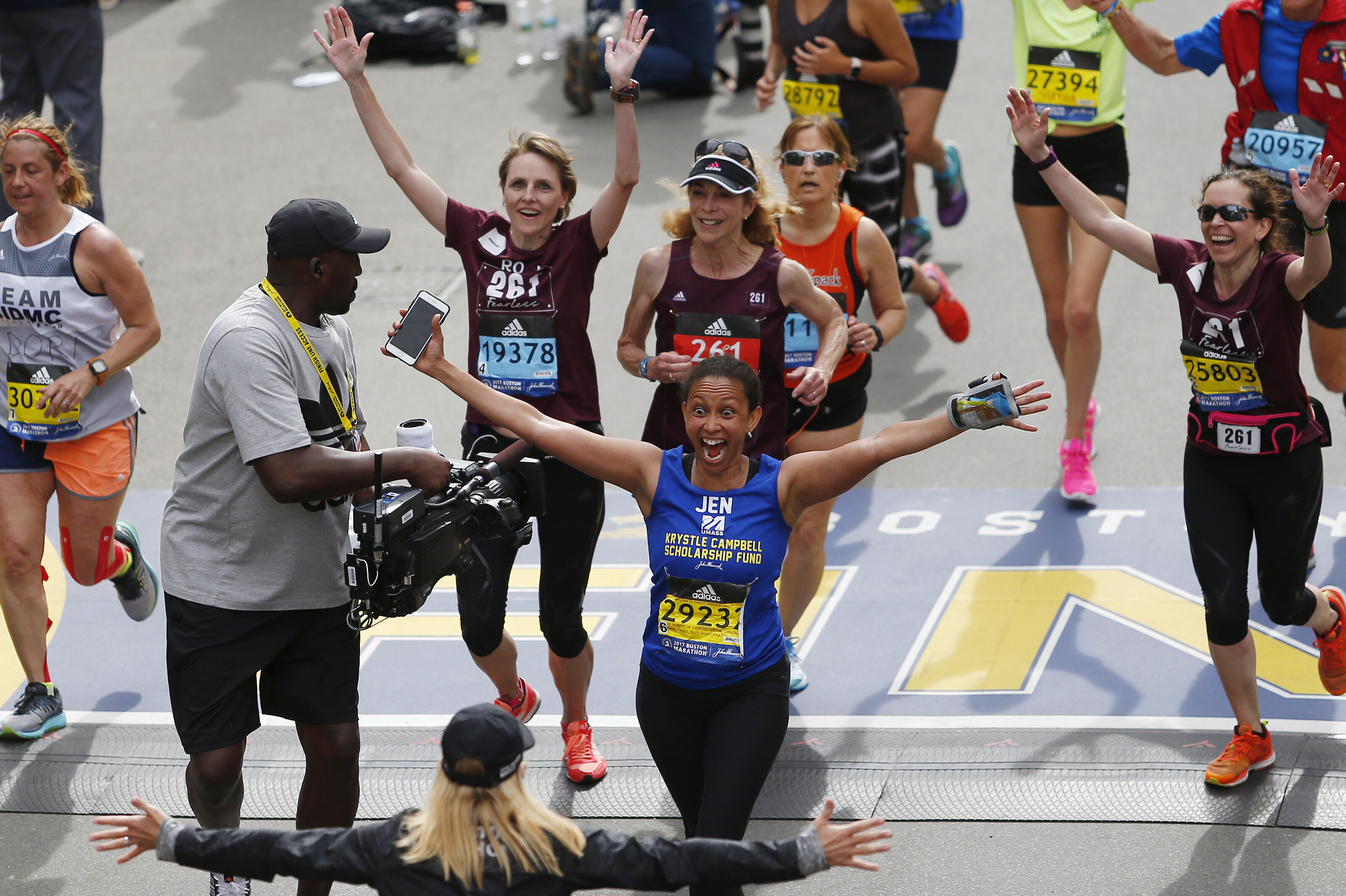
Below, we take a look at the top athletes to watch out for in one of the top events of the 2022 athletics calendar, the route they will follow in Boston, the schedule and how to watch the action.
Tokyo star Jepchirchir targets podium
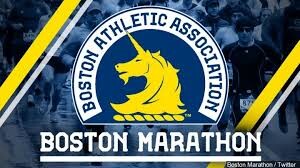
The quality of the women’s race is impressive, with 12 women on the start list having run under 2.23.00
A year after she claimed the Olympic title and the New York City Marathon, Jepchichir has one target: to be the first woman to cross the finish line on Boylston Street.
“My high expectations is to be a winner and I would like to arrive at the day of the race in my best shape,” said Jepchirchir.
The Kenyan will compete with a familiar rival from the Tokyo 2020 podium in Olympic bronze medalist Seidel. The former Boston resident is the third American woman in history to medal in the Olympic marathon.
Two former Boston Marathon champions in 42-year-old Edna Kiplagat (2017 winner), and American Des Linden (2018) will also toe the Boston course again.
The 2022 race will also mark the 50th anniversary of the first official women’s race in 1972.
To mark the occasion, an honorary team comprised of eight women who have made a powerful impact in athletics and human rights will compete. Among the group will be Valerie Rogosheske, one of the original eight finishers in 1972.
All eyes on the returning men's champions
A very strong contingent of men's runners will lock horns on the second stop of the World Marathon Majors, following Eliud Kipchoge's comfortable victory in Tokyo.
Keep an eye on Benson Kipruto, the defending champion from Kenya and his compatriot Lawrence Cherono (2019 Boston winner), Japan’s ‘citizen runner’ Kawauchi Yuki (2018), Kenya’s Geoffrey Kirui (2017), and Ethiopian pair of Lemi Berhanu (2016), and Lelisa Desisa (2015 and 2013).
Geoffrey Kamworor, the two-time New York Marathon winner who trains with Kipchoge in Kaptagat, is back in form after being hit by a motorbike in June 2020 and sitting out for a year.
Elite Americans runners Colin Bennie, hoping to improve on his seventh-place finish from 2021, Jake Riley and Jared Ward, will also be challenging for top honors.
The course
The Boston Marathon hasn't changed from last year, but does see the number of participants increased to 30,000.
The race starts in Hopkinton, MA and ends on Boylston Street in Boston, MA. The course is flat with the most challenging stretch of the race being the steep incline between 29km-34km (Miles 18-21).The notorious Heartbreak Hill is the last of the four hills in Newton.
The schedule of events
This year’s races will start earlier than previous years with expected rolling starts.
Men's Wheelchair - 8:02 am ET.
Women's Wheelchair - 8:05 am ET.
Handcycles & Duos - 8:30 am ET.
Professional Men - 8:37 am ET.
Professional Women - 8:45 am ET.
Para Athletics Divisions - 8:50 am ET.
Rolling Start Begins - 9:00 am ET.
Rolling Start Ends - 11:30 am ET.
How to watch
For Boston residents, they can follow the race live by finding a good spot on the spectator guide, or can kick back in their living room as the marathon will be aired lived on CBS Boston’s WBZ-TV from 7:00am (EDT).
NBC Sports Network and the NBC Sports App are the exclusive national television and streaming partner for the Boston Marathon for wider America.
Live race coverage will be broadcast on NBC Sports Network and the NBC Sports App 7:30 a.m. to 12:00 p.m. ET.
by Evelyn Watta
Login to leave a comment
Boston Marathon
Among the nation’s oldest athletic clubs, the B.A.A. was established in 1887, and, in 1896, more than half of the U.S. Olympic Team at the first modern games was composed of B.A.A. club members. The Olympic Games provided the inspiration for the first Boston Marathon, which culminated the B.A.A. Games on April 19, 1897. John J. McDermott emerged from a...
more...Two-time New York City Marathon champion Geoffrey Kamworor will be making his debut on the streets of Boston on April 18
Three-time World Half marathon champion Geoffrey Kamworor has set his focus on next month's Boston marathon after shaking off a groin injury that ruled him out of last month's Agnes Tirop Memorial World Cross Country Tour.
The two-time New York City Marathon champion will be making his debut on the streets of Boston on April 18 seeking to add to his burgeoning accolades on American soil.
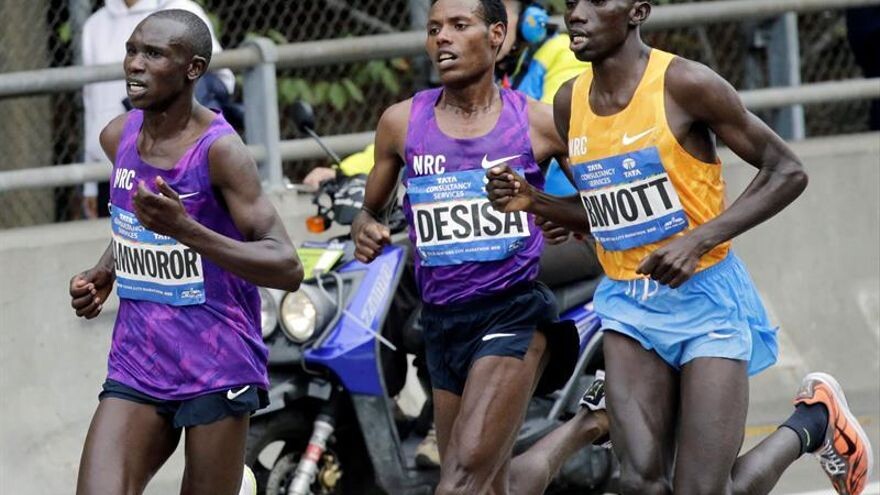
“I was well prepared for the Agnes Tirop World Cross Country Tour but it was very unfortunate that two weeks to the event, I got a groin injury and I had to pull out,” said the 2015 world championships 10,000m silver medalist.
Kamworor said he is targeting a podium finish on debut.
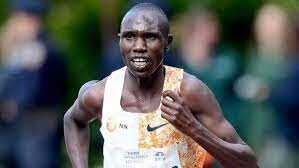
“I feel in great shape, just trying to sharpen my skills a little bit. My training has been flawless and I am hoping for a good result in Boston,” he added.
The four-time world cross country champion (two in senior and two in junior) will be joining a host of top athletes in Boston including compatriots Benson Kipruto (defending champion), Geoffrey Kirui (2017 champion) Evans Chebet, Titus Ekiru, Lawrence Cherono (2019 winner), Bernard Koech, Eric Kiptanui, Bethwell Yegon and Albert Korir (New York City Marathon champion).
Rivals Ethiopia are also represented by a huge, talented contingent led by three-time Olympic champion and the second-fastest marathon runner in history with a best of 2:01:41 Kenenisa Bekele, Lemi Berhanu (2016 winner), Lelisa Desisa (2015 and 2013 winner), Bayelign Teshager and Jemal Yimer.
Italian Eyob Faniel of Italy, Japan's Yuki Kawauchi (2018 winner), Amanuel Mesel, Tsegay Tuemay Weldibanos (Eritrea), Scott Fauble, Colin Bennie, Jared Ward, Ian Butler, Mick Iacofano, Jake Riley, Jerrell Mock, Matt McDonald, Matt Llano, Elkanah Kibet, CJ Albertson, Diego Estrada (USA), Trevor Hofbauer (Canada), Juan Luis Barrios (Mexico) and Gabriel Geay of Tanzania are also in the mix.
by Emmanuel Sabuni
Login to leave a comment
Boston Marathon announces their fastest ever men’s field
Organisers of the Boston Marathon have revealed their fastest ever men’s field for the 126th edition of the World Athletics Platinum Elite Label road race on 18 April.
It features 12 men with lifetime bests faster than 2:06, led by three-time Olympic champion Kenenisa Bekele of Ethiopia, the second fastest marathon runner in history with a best of 2:01:41.
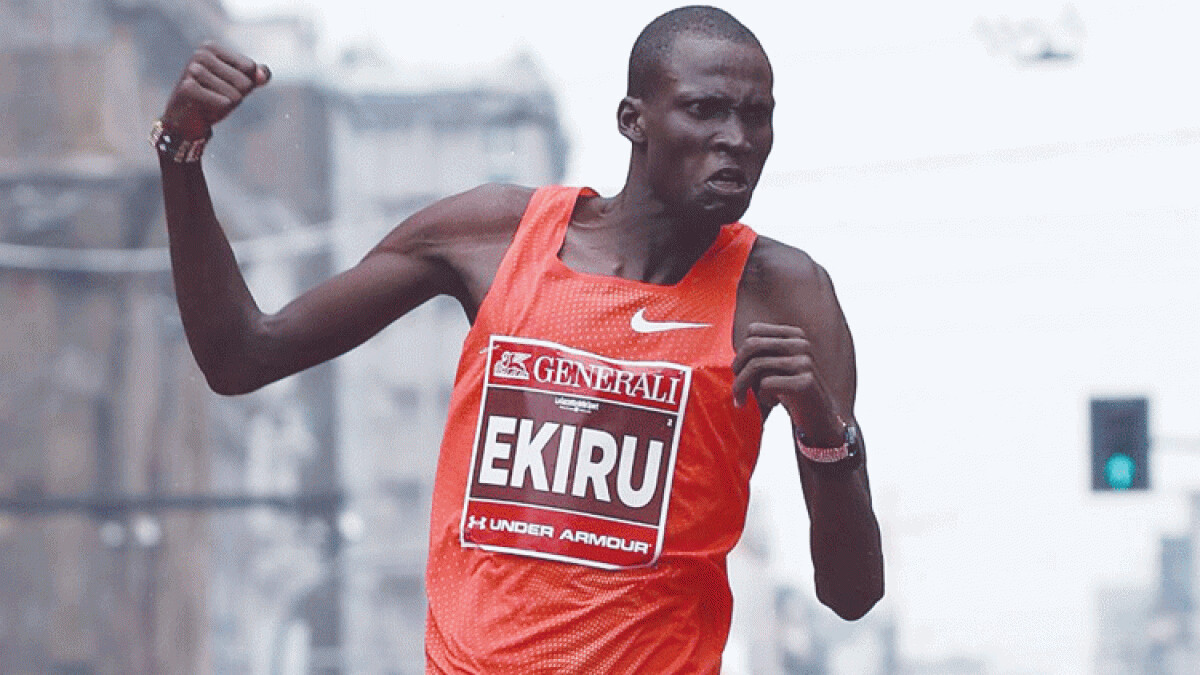
“I recognise the tradition of the Boston Marathon and look forward to racing in April,” said Bekele. “For many years Ethiopia has had a strong tradition in Boston, and I am excited to join that legacy. I have long looked forward to racing the Boston Marathon.”
Seven of the past eight winners will also return to Boston, including 2021 champion Benson Kipruto of Kenya. Lawrence Cherono (2019), Yuki Kawauchi (2018), Geoffrey Kirui (2017), Lemi Berhanu (2016), and Lelisa Desisa (2015 and 2013) are the other six former winners.
“Being back in Boston as a champion is very exciting, but at the same time I feel the pressure and the responsibility to defend my title,” said Kipruto. “I really admire those athletes that managed to be multiple champions in big races. I really want to do my best to be one of them and I really hope to make my name among those Boston champions that people will remember for a long time.”
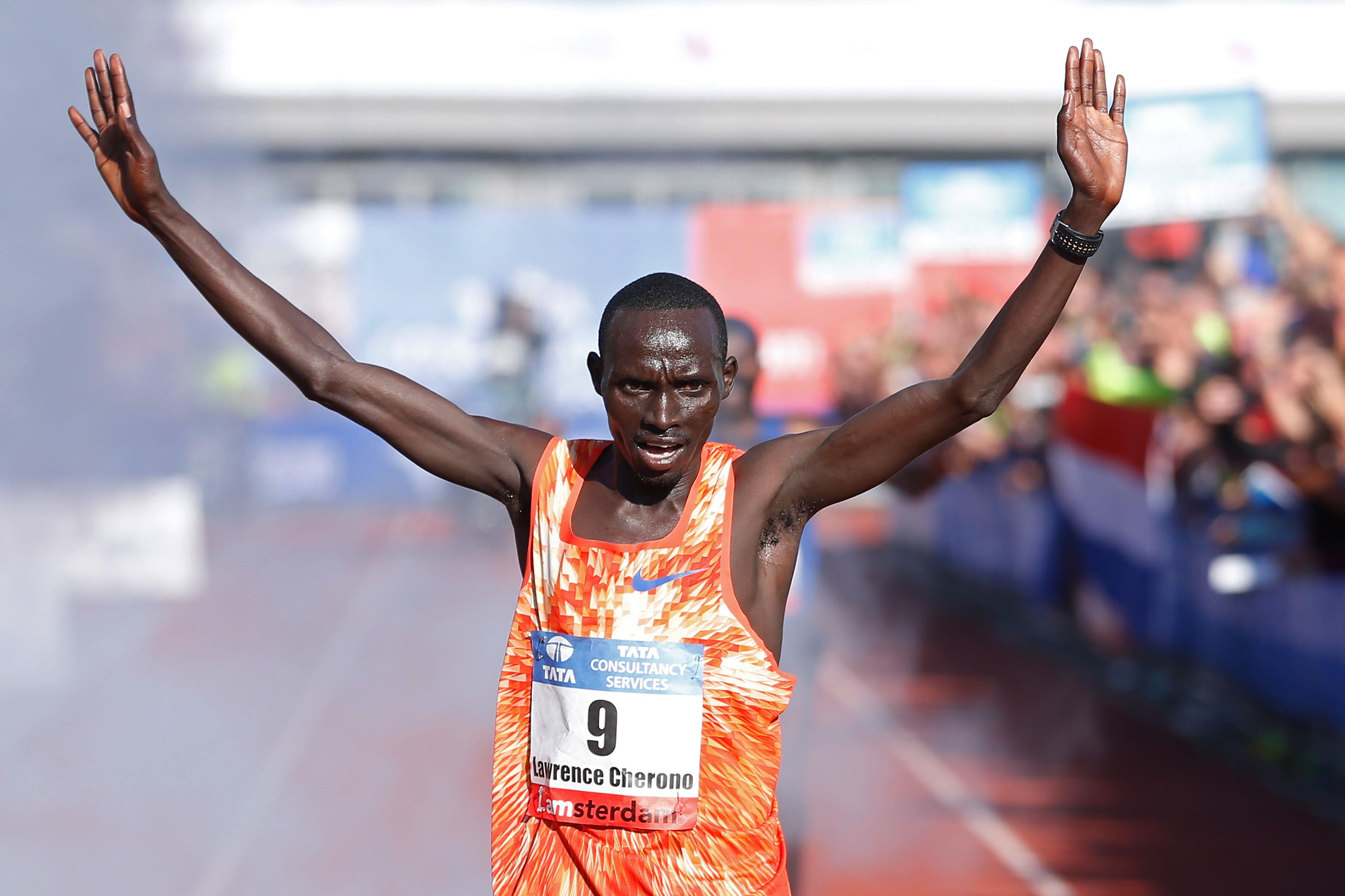
Other strong contenders include Titus Ekiru, the fastest marathon runner in the world last year having run 2:02:57 in Milan, 2020 world leader Evans Chebet, New York City Marathon winner Albert Korir, and three-time world half marathon champion Geoffrey Kamworor.
Men’s elite field
Kenenisa Bekele (ETH) 2:01:41Titus Ekiru (KEN) 2:02:57Evans Chebet (KEN) 2:03:00Lawrence Cherono (KEN) 2:03:04Bernard Koech (KEN) 2:04:09Lemi Berhanu (ETH) 2:04:33Lelisa Desisa (ETH) 2:04:45Gabriel Geay (TAN) 2:04:55Benson Kipruto (KEN) 2:05:13Geoffrey Kamworor (KEN) 2:05:23Eric Kiptanui (KEN) 2:05:47Bethwell Yegon (KEN) 2:06:14Geoffrey Kirui (KEN) 2:06:27Eyob Faniel (ITA) 2:07:19Yuki Kawauchi (JPN) 2:07:27Albert Korir (KEN) 2:08:03Amanuel Mesel (ERI) 2:08:17Bayelign Teshager (ETH) 2:08:28Tsegay Tuemay Weldibanos (ERI) 2:09:07Scott Fauble (USA) 2:09:09Colin Bennie (USA) 2:09:38Trevor Hofbauer (CAN) 2:09:51Jared Ward (USA) 2:09:25Ian Butler (USA) 2:09:45Mick Iacofano (USA) 2:09:55Jake Riley (USA) 2:10:02Jerrell Mock (USA) 2:10:37Jemal Yimer (ETH) 2:10:38Juan Luis Barrios (MEX) 2:10:55Matt McDonald (USA) 2:11:10Matt Llano (USA) 2:11:14Elkanah Kibet (USA) 2:11:15CJ Albertson (USA) 2:11:18Diego Estrada (USA) 2:11:54
by World Athletics
Login to leave a comment
Boston Marathon
Among the nation’s oldest athletic clubs, the B.A.A. was established in 1887, and, in 1896, more than half of the U.S. Olympic Team at the first modern games was composed of B.A.A. club members. The Olympic Games provided the inspiration for the first Boston Marathon, which culminated the B.A.A. Games on April 19, 1897. John J. McDermott emerged from a...
more...USATF Announces Tougher Olympic Marathon Trials Standards for 2024
A major caveat: The Trials might not be held if World Athletics won’t accept the top three finishers as Olympians.
Qualifying standards for the 2024 Olympic Marathon Trials were announced today at the USA Track & Field (USATF) annual meeting, and they’re faster than the times needed to get into the 2020 race—especially for women.
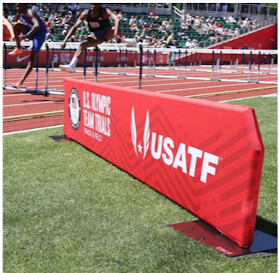
Women who want to enter the race must have qualified with a 2:37 marathon or faster, or a 1:12 half marathon or faster. The marathon time is 8 minutes faster than the 2:45 required to get into the 2020 Trials. (The half marathon time in 2020 was 1:13.)
For men, the times are 2:18 and 1:03, one minute faster at both distances than the 2020 times (2:19 and 1:04).
The qualifying window for marathon times opens on January 1, 2022 and for half marathon times, January 1, 2023.
The 2020 Trials, held in Atlanta, had a historically large field, with 511 women and 260 men qualified to run. Improved shoe technology made it easier for many sub-elite runners to hit the times they needed to qualify for the race.
The top three made the Olympic team—for the women, it was Aliphine Tuliamuk, Molly Seidel, and Sally Kipyego. On the men’s side Galen Rupp won, Jake Riley was second, and Abdi Abdirahman was third.
Behind them, the race turned into a celebration of the strength of distance running in the U.S., with hundreds of runners who had no realistic shot of making the Olympic team soaking up the crowd support along the course and celebrating their achievements.
Leaders at USATF apparently decided the field was too big. Based on the women’s qualifying list from 2020, only 83 women had a marathon time faster than 2:37. Only eight women qualified with a half marathon faster than 1:12.
Conceivably, with the stricter standards, the women’s field could go from 511 in 2020 to 91 runners in 2024.
By the same measure, the men’s field from 2020 would have been 76 people smaller in the marathon, 15 smaller in the half marathon. The men’s field would shrink from 260 to 169.
Much of this discussion may be moot. World Athletics, which governs track and field and the marathon at the Olympics, has encouraged national governing bodies to rely on world rankings to choose their national teams, rather than a one-day Trials format from which the top three make the team.
The Olympic standards are also expected to be stricter, too. In 2021, for the marathons in Sapporo, Japan, the Olympic standards were 2:11:30 for the men and 2:29:30 for the women—in other words, it wasn’t enough for Americans to have finished in the top 3 at the Trials in the marathon. They also had to have run a marathon faster than the Olympic standard to get to go to the race.
World Athletics has not yet announced what the 2024 Olympic standards will be.
USATF has not yet sent out a request for proposal (RFP) for cities to host the Trials, which puts the process well behind its typical cycle. (Atlanta was announced as the host of the 2020 Trials by April 2018, meaning bids were in to USATF months before that.) Races are not thought to be clamoring to host, after a year in which most major marathons were canceled due to the pandemic and finances are stretched in the road racing industry.
Although the Trials in Atlanta were seen as a huge success, the local organizing committees usually lose money on the race because of restrictions on which companies can sponsor the event.
by Runner’s World
Login to leave a comment
All about the marathon at the Tokyo Olympics
While the men’s marathon has been a staple of the Olympics since the first modern Games in 1896, women were not allowed to run the 26.2-mile race until the 1984 Summer Games, which were held in Los Angeles. Now both the men’s and women’s races are among the most anticipated events on the Olympic calendar.
When is the Olympic marathon?
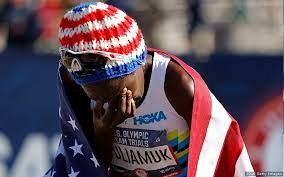
The women’s race is scheduled for Aug. 7, and the men will run on Aug. 8, the final day of Olympic competition.
Where will the Olympic marathon take place?
While the bulk of the Olympic competition takes place in Tokyo, the marathon races will be staged in Sapporo, which is located 500 miles north of the host city. Local Olympic organizers were eager to keep the race in Tokyo, but the International Olympic Committee pushed to relocate both marathons and the racewalking events in October 2019 due to concerns about high temperatures in Tokyo.
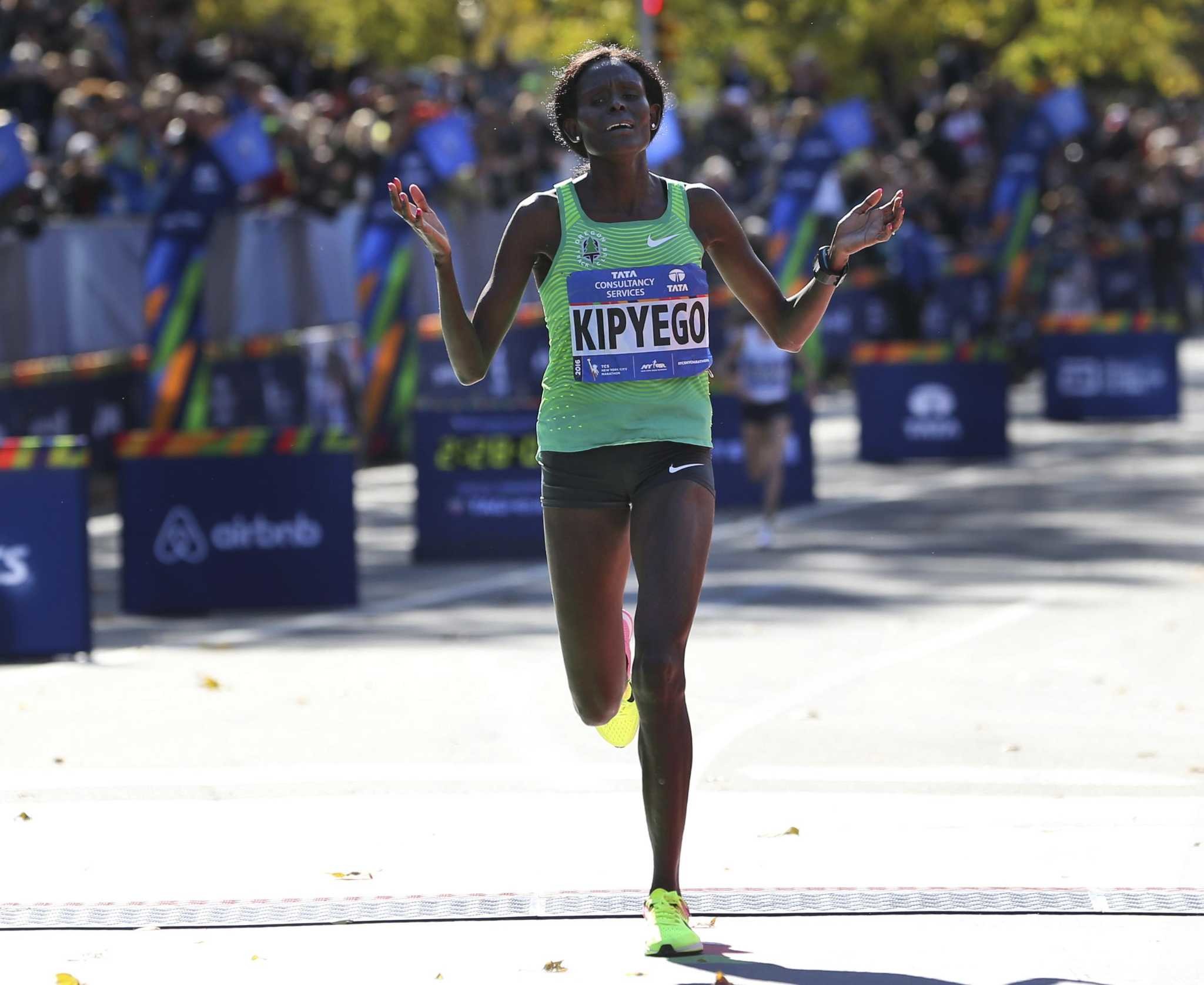
Who will represent the United States in marathon?
The United States staged its Olympic trials in February 2020, so the top American runners have had nearly one and a half years to prepare for the Sapporo course.
Galen Rupp, 35, was the top men’s qualifier, posting a first-place time of 2 hours 9 minutes 20 seconds at trials and earning a spot in his fourth Olympic Games. Rupp won silver in the men’s 10,000 meters at the 2012 Games before tackling the marathon four years later. He took bronze in the 2016 Olympic marathon with a time of 2:10:05, even though it was only the second time in his life that he tackled a 26.2-mile course.
He’ll be joined in Tokyo by fellow Americans Jake Riley and Abdi Abdirahman. Riley, 32, was 42 seconds behind Rupp at trials and was also the top American finisher at the 2019 Chicago Marathon. The Somali-born Abdirahman will be competing in his fifth Olympics and at 44 years old will be the oldest American runner to ever compete in a Summer Games.
Kenyan-born Aliphine Tuliamuk won the women’s marathon trials with a time of 2:27:23, and will be making her Olympic debut at age 32. Before the Tokyo Games were postponed due to covid-19, Tuliamuk had planned on starting a family immediately following the 2020 Olympics. The year-long delay changed her timeline and she gave birth to her daughter, Zoe, in January.
She’ll be joined at trials by Molly Seidel, who finished the trials just eight seconds behind Tuliamuk, and Sally Kipyego. The 27-year old Seidel will be making her Olympic debut. She was also the second American woman finisher at the 2020 London Marathon.
Kipyego, 35, is a decorated long-distance runner who will be competing in her second Olympics. Running for her native Kenya in 2012, she took silver in the 10,000-meter race.
by Rick Maese
Login to leave a comment
Tokyo 2020 Olympic Games
Fifty-six years after having organized the Olympic Games, the Japanese capital will be hosting a Summer edition for the second time, originally scheduled from July 24 to August 9, 2020, the games were postponed due to coronavirus outbreak, the postponed Tokyo Olympics will be held from July 23 to August 8 in 2021, according to the International Olympic Committee decision. ...
more...130 athletes named on the team to represent the United States at the Tokyo Olympic Games
World outdoor record-holders Sydney McLaughlin, Ryan Crouser and Keni Harrison are among the 130 athletes named on the team to represent the United States at the Tokyo Olympic Games.
The squad includes 13 medalists from the 2016 Games in Rio and six defending world champions from Doha. Experienced headliners include five-time Olympians Allyson Felix in the 400m and Abdi Abdirahman in the marathon, while the youngest athlete on the team is 17-year-old Erriyon Knighton, who twice broke the world U20 200m record last month at the US Olympic Trials.
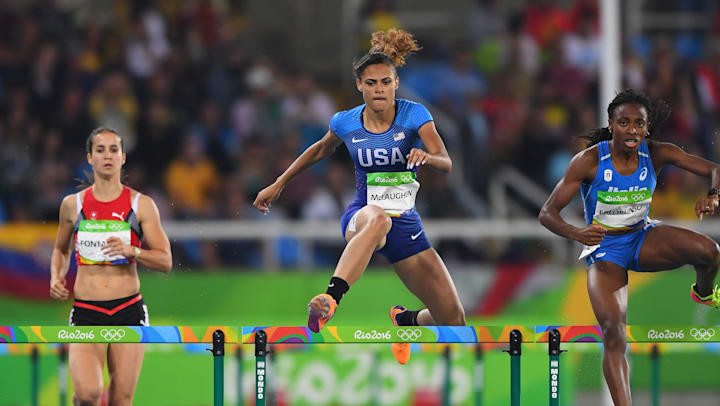
JuVaughn Harrison won both the long jump and high jump at the Trials in Eugene and he will be among the athletes contesting two events in Tokyo as he has been selected for both disciplines.
Other athletes announced on the team include world indoor 60m hurdles record-holder Grant Holloway, who was just 0.01 shy of breaking Aries Merritt’s world 110m hurdles record of 12.80 in Eugene, plus former world 400m hurdles record-holder Dalilah Muhammad, the second-fastest ever 200m sprinter Gabby Thomas and multiple global long jump gold medalist Brittney Reese.
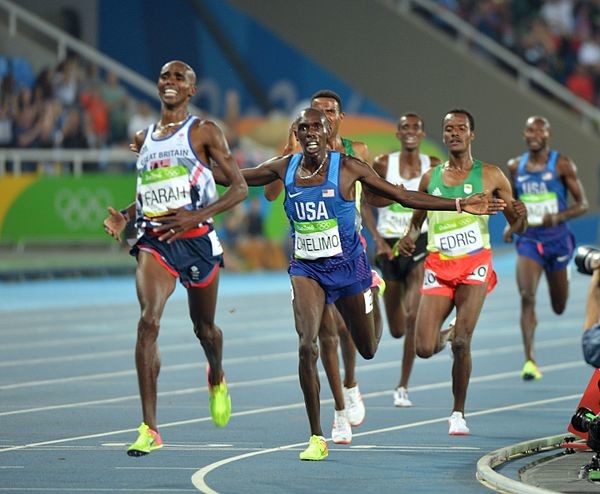
USA team for Tokyo
WOMEN
100m: Teahna Daniels, Javianne Oliver, Jenna Prandini
200m: Anavia Battle, Jenna Prandini, Gabby Thomas
400m: Allyson Felix, Quanera Hayes, Wadeline Jonathas
800m: Athing Mu, Raevyn Rogers, Ajee' Wilson
1500m: Heather MacLean, Cory McGee, Elle Purrier
5000m: Elise Cranny, Rachel Schneider, Karissa Schweizer
10,000m: Alicia Monson, Karissa Schweizer, Emily Sisson
Marathon: Sally Kipyego, Molly Seidel, Aliphine Tuliamuk
3000m steeplechase: Emma Coburn, Val Constien, Courtney Frerichs
100m hurdles: Christina Clemons, Gabbi Cunningham, Keni Harrison
400m hurdles: Anna Cockrell, Sydney McLaughlin, Dalilah Muhammad
20km race walk: Robyn Stevens
High jump: Tynita Butts-Townsend, Vashti Cunningham, Rachel McCoy
Pole vault: Morgann LeLeux, Katie Nageotte, Sandi Morris
Long jump: Quanesha Burks, Tara Davis, Brittney Reese
Triple jump: Tori Franklin, Jasmine Moore, Keturah Orji
Shot put: Adelaide Aquilla, Jessica Ramsey, Raven Saunders
Discus: Valarie Allman, Kelsey Card, Rachel Dincoff
Hammer: Brooke Andersen, Gwen Berry, DeAnna Price
Javelin: Ariana Ince, Maggie Malone, Kara Winger
Heptathlon: Erica Bougard, Annie Kunz, Kendell Williams
4x100m: English Gardner, Aleia Hobbs, Gabby Thomas (plus others selected in individual events)
4x400m: Kendall Ellis, Lynna Irby, Kaylin Whitney (plus others selected in individual events)
MEN
100m: Ronnie Baker, Trayvon Bromell, Fred Kerley
200m: Kenny Bednarek, Erriyon Knighton, Noah Lyles
400m: Michael Cherry, Michael Norman, Randolph Ross
800m: Bryce Hoppel, Isaiah Jewett, Clayton Murphy
1500m: Matthew Centrowitz, Cole Hocker, Yared Nuguse
5000m: Paul Chelimo, Grant Fisher, Woody Kincaid
10,000m: Grant Fisher, Woody Kincaid, Joe Klecker
Marathon: Abdi Abdirahman, Jake Riley, Galen Rupp
3000m steeplechase: Hillary Bor, Mason Ferlic, Benard Keter
110m hurdles: Devon Allen, Grant Holloway, Daniel Roberts
400m hurdles: Rai Benjamin, David Kendziera, Kenny Selmon
20km race walk: Nick Christie
High jump: JuVaughn Harrison, Shelby McEwen, Darryl Sullivan
Pole vault: Sam Kendricks, KC Lightfoot, Chris Nilsen
Long jump: Marquis Dendy, JuVaughn Harrison, Steffin McCarter
Triple jump: Chris Benard, Will Claye, Donald Scott
Shot put: Ryan Crouser, Joe Kovacs, Payton Otterdahl
Discus: Mason Finley, Reggie Jagers, Sam Mattis
Hammer: Daniel Haugh, Rudy Winkler, Alex Young
Javelin: Michael Shuey, Curtis Thompson
Decathlon: Steven Bastien, Garrett Scantling, Zach Ziemek
4x100m: Kenny Bednarek, Cravon Gillespie, Micah Williams (plus others selected in individual events)
4x400m: Elija Godwin, Vernon Norwood, Trevor Stewart (plus others selected in individual events)
MIXED
4x400m: Shae Anderson, Bryce Deadmon, Wil London, Taylor Manson (plus others selected in individual events).
by World Athletics
Login to leave a comment
Tokyo 2020 Olympic Games
Fifty-six years after having organized the Olympic Games, the Japanese capital will be hosting a Summer edition for the second time, originally scheduled from July 24 to August 9, 2020, the games were postponed due to coronavirus outbreak, the postponed Tokyo Olympics will be held from July 23 to August 8 in 2021, according to the International Olympic Committee decision. ...
more...The U.S. Track and Field Athletes Who Qualified for 2021 Olympics
The team representing the U.S. in Tokyo is a mix of veterans and first-timers.
The U.S. Olympic Track and Field Trials are taking place at Hayward Field in Eugene, Oregon, from June 18 through June 27, and the top three finishers in each event will represent the United States at the Olympic Games in Tokyo. Here’s a list of those who have already qualified and have met the Tokyo Olympic Standard.
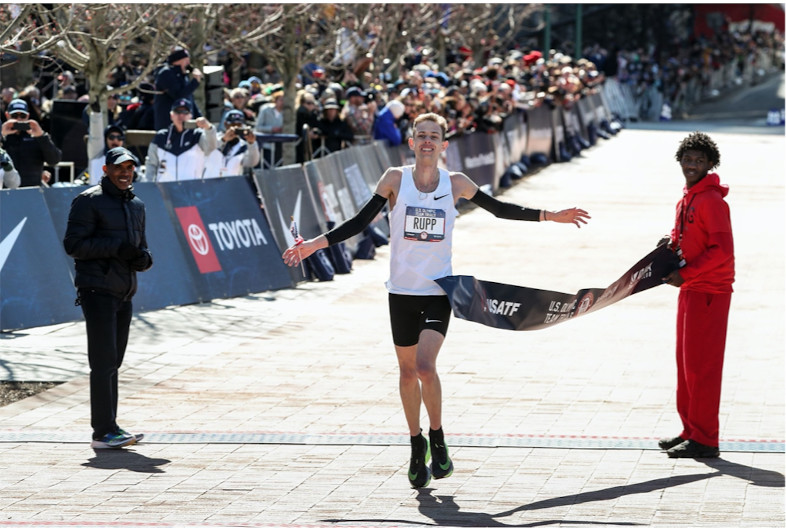
Aliphine Tuliamuk — Women’s Marathon
Qualified: First in 2:27:23
Olympic history: This will be Tuliamuk’s first Olympic appearance.
Molly Seidel — Women’s Marathon
Qualified: Second in 2:27:31
Olympic History: This will be Seidel’s first Olympic appearance.
Sally Kipyego — Women’s Marathon
Qualified: Third in 2:28:52
Olympic History: 2012 — Silver medal in the 5,000 meters.
Galen Rupp — Men’s Marathon
Qualified: First in 2:09:20
Olympic history: 2016 — Bronze medal in the marathon, fifth in 10,000 meters; 2012 — silver medal in 10,000 meters, seventh in 5,000 meters; 2008 — 13th in 10,000 meters.
Jake Riley — Men’s Marathon
Qualified: Second in 2:10:02

Olympic history: This will be Riley’s first Olympic appearance.
Abdi Abdirahman — Men’s Marathon
Qualified: Third in 2:10:03

Olympic history: 2012 — DNF in marathon; 2008 — 15th in 10,000 meters; 2004 — 15th in 10,000 meters; 2000 — 10th in 10,000 meters.
by Runner’s World
Login to leave a comment
Olympics-Bound Marathoner Jake Riley Signs with On
Jake Riley, the surprise second-place finisher at the 2020 USA Olympic Team Trials Men's Marathon last February, has signed a sponsorship agreement with On, the Swiss maker of running shoes and apparel. Riley, 32, was unsponsored at the Trials.
"We are thrilled to partner with Riley as he sets off to represent On and the United States in the 2020 Tokyo Olympics next year," said On co-founder and former world duathlon champion Olivier Bernhard through a media release. "Not only has he proven himself an outstanding athlete, he embodies the resilience and drive to succeed that powers performance running here at On."
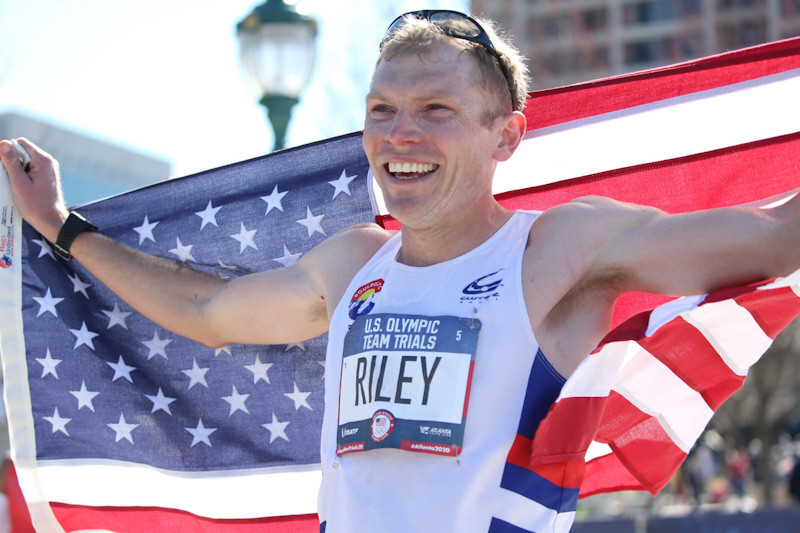
Riley, who lives in Boulder, Colo., where he trains under coach Lee Troop and is also working towards a masters degree in biomechanical engineering at the University of Colorado, was a promising athlete after graduating from Stanford in 2012 and joining the Hansons-Brooks program in Michigan where he stayed through 2016. But an Achilles injury took him out of the sport for yearly three years until he mounted a comeback in the summer of 2019 which culminated in a 2:10:36 personal best at the Bank of America Chicago Marathon last October.
"This was well beyond expectations," Riley told Race Results Weekly after his run in Chicago. He said that he "very seriously" thought about quitting the sport, but under coach Troop was optimistic about his future after "months of feeling like ten pounds of dirt in a five pound bag."
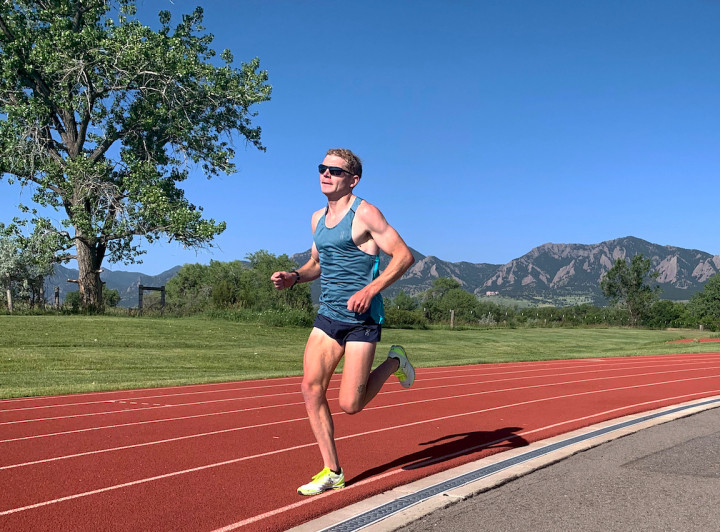
His run in Chicago elevated him to a possible Tokyo team-maker, but he still did not sign with a sponsor, waiting for the right opportunity. He feels that the wait was worth it.
"I'm so happy to be joining the On team," Riley said through a statement. "I'm excited to represent a company that's committed to running and runners, and I'm looking forward to finding out just how far we can go together."
Riley will wear his On kit and shoes for the first time in a competition tomorrow where he will face Olympic marathoner Jared Ward in a remote 5-K competition where Riley will run in Boulder and Ward in Provo, Utah. The race, called the Virtual 5-K Challenge presented by KT Tape, will be streamed live via Instagram on the @TeamBoulder account with commentary from Ed Eyestone (who coaches Ward) and Troop.
On is a fast-growing brand in the running space, according to an analysis by data company NPD Group published last September. Ten years after market launch, their products are available at over 6,000 retailers in 55 countries, the company said. A few months ago tennis legend Roger Federer joined the company as a "true partner," and is helping to oversee "product development, marketing, and fan experiences," the company said.
by David Monti
Login to leave a comment
Ultrarunner Jim Walmsley runs 2:15:05 marathon debut at U.S. Olympic Trials
Jim Walmsley, one of the world’s best ultrarunners, ran his marathon debut at the 2020 U.S. Olympic Trials. On Saturday, Walmsley finished in 22nd and crossed the line in 2:15:05.
A year ago, we looked at Walmsley’s training as the Houston Half-Marathon approached. At Houston he nailed a 1:04:00, exactly the time he needed (down to the second) to qualify for the marathon trials. Following his 2019 Houston race, he went on to win a 50-mile race in Hong Kong and take 43 seconds off the 50-mile world record before shattering his own course record at Western States.
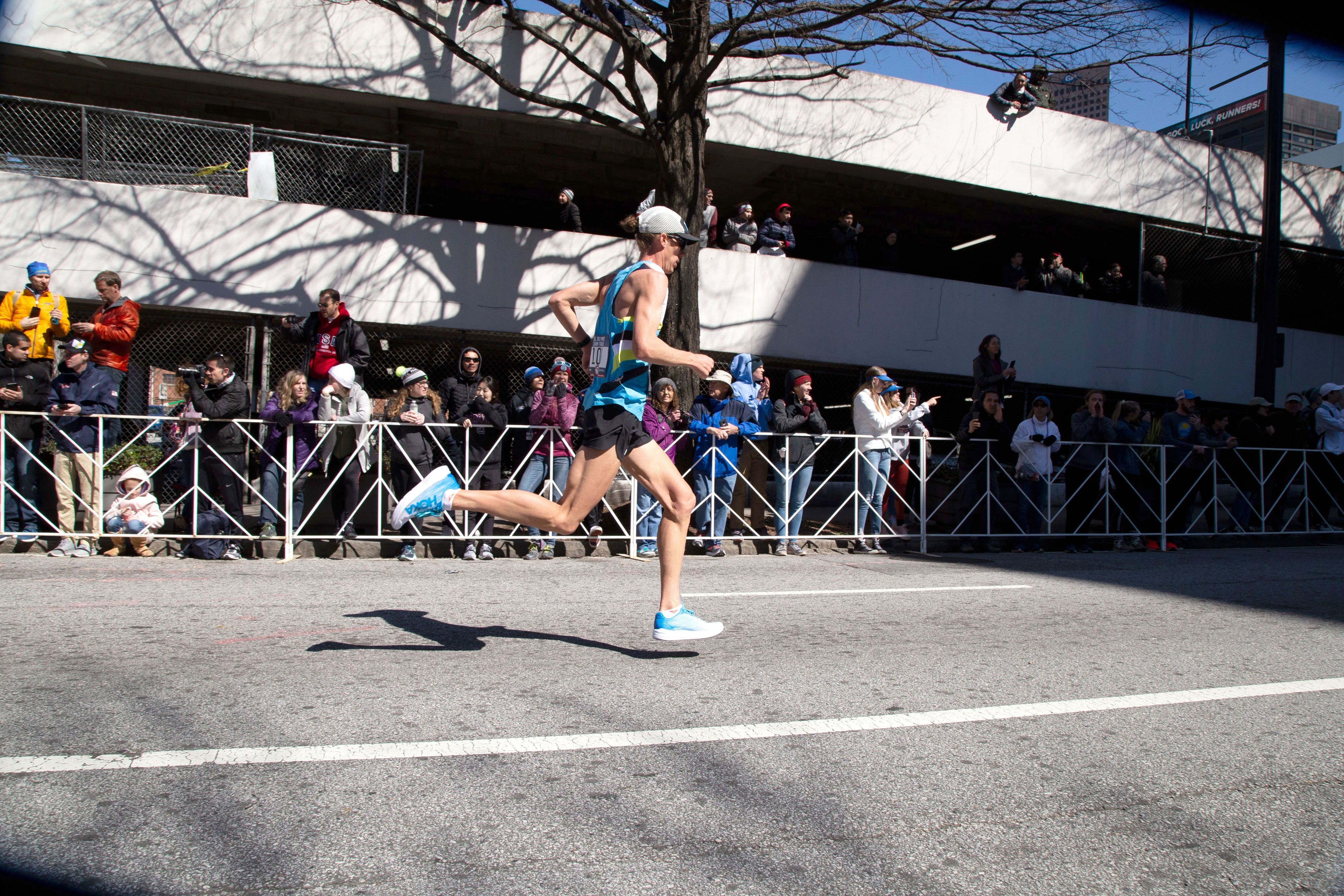
There’s no doubt Walmsley is a tough racer, but this was his first time racing a road marathon, and he didn’t quite have the chops to make the 2020 Olympic team. With that said, he ran an extremely impressive debut, on a windy day and on a hilly course.
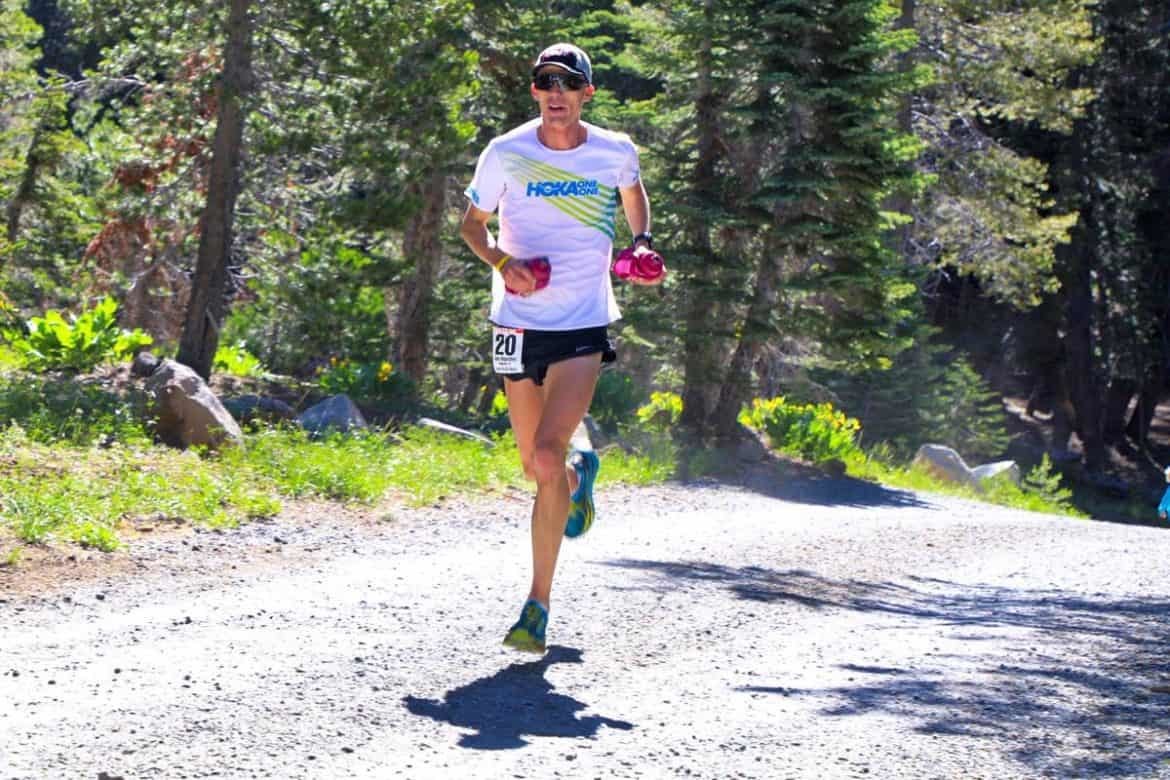
The runner sat in the chase group (which included Galen Rupp, the eventual winner) for the first half of the race. That group was on pace for a sub-2:10 marathon, am ambitious pace for most of the runners.
Walmsley would fade, but not too much, averaging 5:10 miles and closing in 5:17. He finished ahead of some very impressive names like Jared Ward and Connor McMillan.
On Saturday, Rupp has made his fourth Olympic team, winning the 2020 U.S. Olympic Marathon Trials in 2:09:20. Second place went to first-time Olympic qualifier Jake Riley, and third to five-time Olympic qualifier, masters runner Abdi Abdirahman. At 43, Abdirahman is also the oldest American ever to qualify for the Olympic marathon.
by Madeleine Kelly
Login to leave a comment
2028 US Olympic Trials Marathon
Most countries around the world use a selection committee to choose their Olympic Team Members, but not the USA. Prior to 1968, a series of races were used to select the USA Olympic Marathon team, but beginning in 1968 the format was changed to a single race on a single day with the top three finishers selected to be part...
more...Aliphine Tuliamuk will be on the USA roster for the up coming Bolder Boulder
The women’s team will feature former Colorado Buffaloes star Aliphine Tiliamuk along with Shalaya Kipp, Tiliamuk finished second at last year’s women’s International Team Challenge.
Tuliamuk finished 11 seconds behind Ethiopia’s Mamita Daska, who won the elite 10-kilometer race for a record sixth time in 2018.
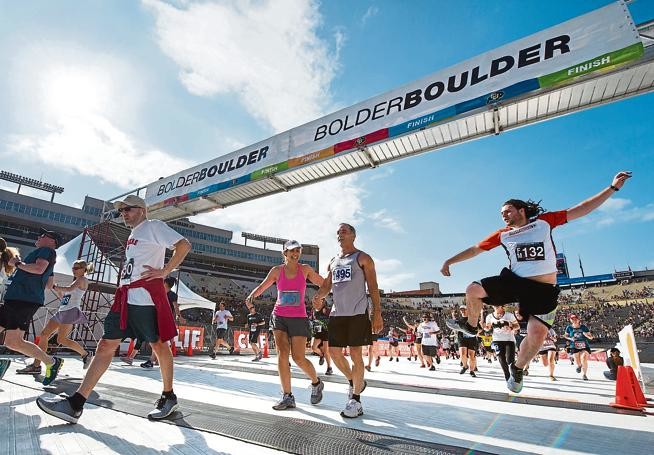
Rounding out the women’s squad will be Lindsey Scherf, who finished sixth last year on a USA women’s red team finished second behind Daska’s Ethiopian team; Taylor Ward, who finished third at the FORTitude pro 10K in Fort Collins last year; 2017 women’s citizen’s race winner Lauren Martin Masterson; a Deanna Ardrey, Stephanie Bruce, Melissa Dock, and Kaitlin Goodmen.
The remainder of the men’s team will be comprised of Parker Stinson, Haron Lagat, Reid Buchanan, Reed Fischer, Tim Rackers, Jake Riley, and Diego Estrada, who finished eighth last year and is the top returning American in the professional field.

The remainder of the international field will be announced at a later date.
“We’re ready for a super competitive international event thanks to the athlete’s continuing commitment to the race, “ Bolder Boulder race director Cliff Bosley said in a statement.
“Some of the top-ranked teams are trained in both altitude and marathon running and bring a competitive edge that keeps the event exhilarating to watch each and every year.”
Login to leave a comment
BOLDER BOULDER
In 1979 we dreamt of attracting a few hundred of our friends to race though the streets of Boulder, Colorado to celebrate Memorial Day with our families. Fast forward almost 40 years and the Bolder BOULDER has grown to become one of the largest and most highly acclaimed 10K’s in the world. Almost 1.2 million runners, joggers, walkers and spectators...
more...Strong field is set for Bolder Boulder including Jared Ward and Tyler McCandless
Returning to race this year is Jared Ward who was the first American in the New York Marathon and finished 8th overall at the Boston Marathon and Tyler McCandless who won the 2018 Bolder Boulder citizen’s race.
“We feel that with the strong pool of runners this year that Team USA could possibly take first place,” said pro athlete coordinator, Don Janicki. “With three returning champions in the men’s field it will be a really great competitive race.”
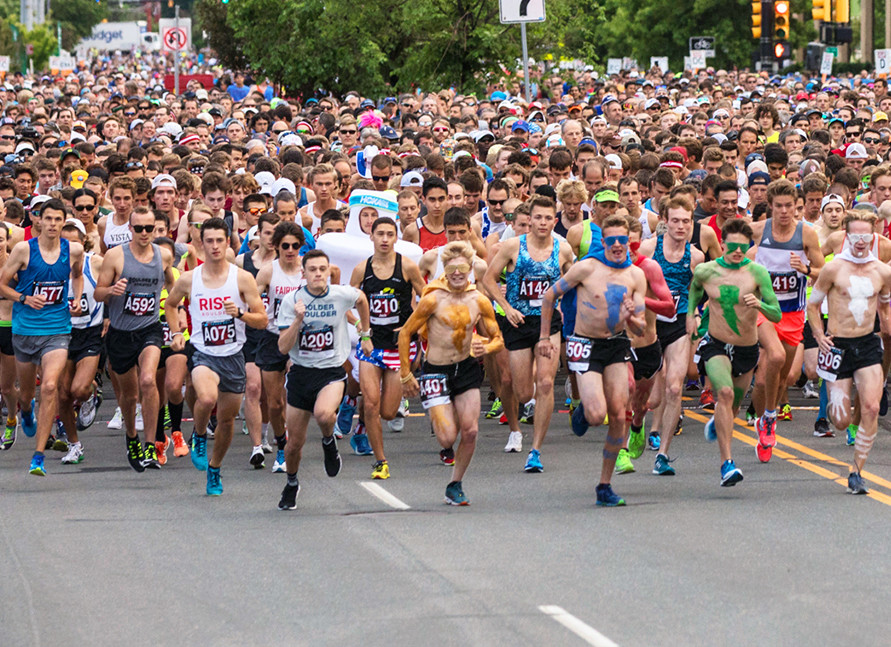
Members of the Men’s Team USA also include national title winner Parker Stinson who shattered 25K American record at the USATF 25K in May 2019 by 30 seconds, Haron Lagat who placed second at the 2017 Fortitude 10K Pro Race Chase; Diego Estrada who has a 10K personal best of 27:57; Reid Buchanan who has a 27:58 10K PR; Eagle Scout Reed Fischer who has a 10K PR of 28:38; Boulder Track Club member Tim Rackers; and Boulder based professional runner Jake Riley who has a 10K PR of 27:59.
The Women’s Team USA include Taylor Ward; a rising star in American women’s distance running who placed third at the 2018 Fortitude 10K Pro Race Chase.
Lindsey Scherf who broke the indoor marathon world record at the Armory NYC Indoor Marathon World Record Challenge in 2018 by nearly two minutes; Lauren Martin Masterson who was the first female finisher of the 2017 Bolder Boulder citizen’s race; Kaitlin Goodmen who has a 10K PR of 33:18; and Stephanie Bruce who set a PR at the 5,000 meters indoors (15:44) at the New Balance Boston Indoor Games; Former Colorado Buffaloes star Shalaya Kipp.
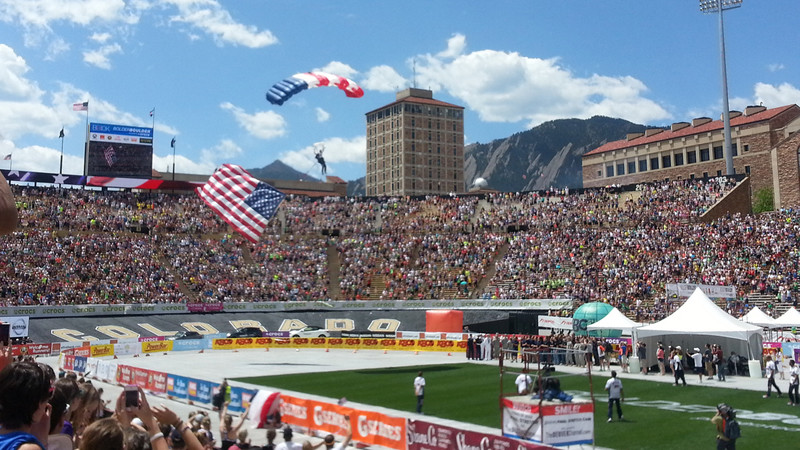
In addition to the Americans competing at this year’s race, the Bolder Boulder will be welcoming teams from all over the world including Ethiopia, Japan, Kenya, Mexico, Tanzania, Bahrain, Eritrea, Ethiopia, Rwanda and Pan South America.
“We’re ready for a super competitive international event thanks to the athlete’s continuing commitment to the race, “said Race Director, Cliff Bosley. “Some of the top ranked teams are trained in both altitude and marathon running and bring a competitive edge that keeps the event exhilarating to watch each and every year.”
Login to leave a comment
BOLDER BOULDER
In 1979 we dreamt of attracting a few hundred of our friends to race though the streets of Boulder, Colorado to celebrate Memorial Day with our families. Fast forward almost 40 years and the Bolder BOULDER has grown to become one of the largest and most highly acclaimed 10K’s in the world. Almost 1.2 million runners, joggers, walkers and spectators...
more...

